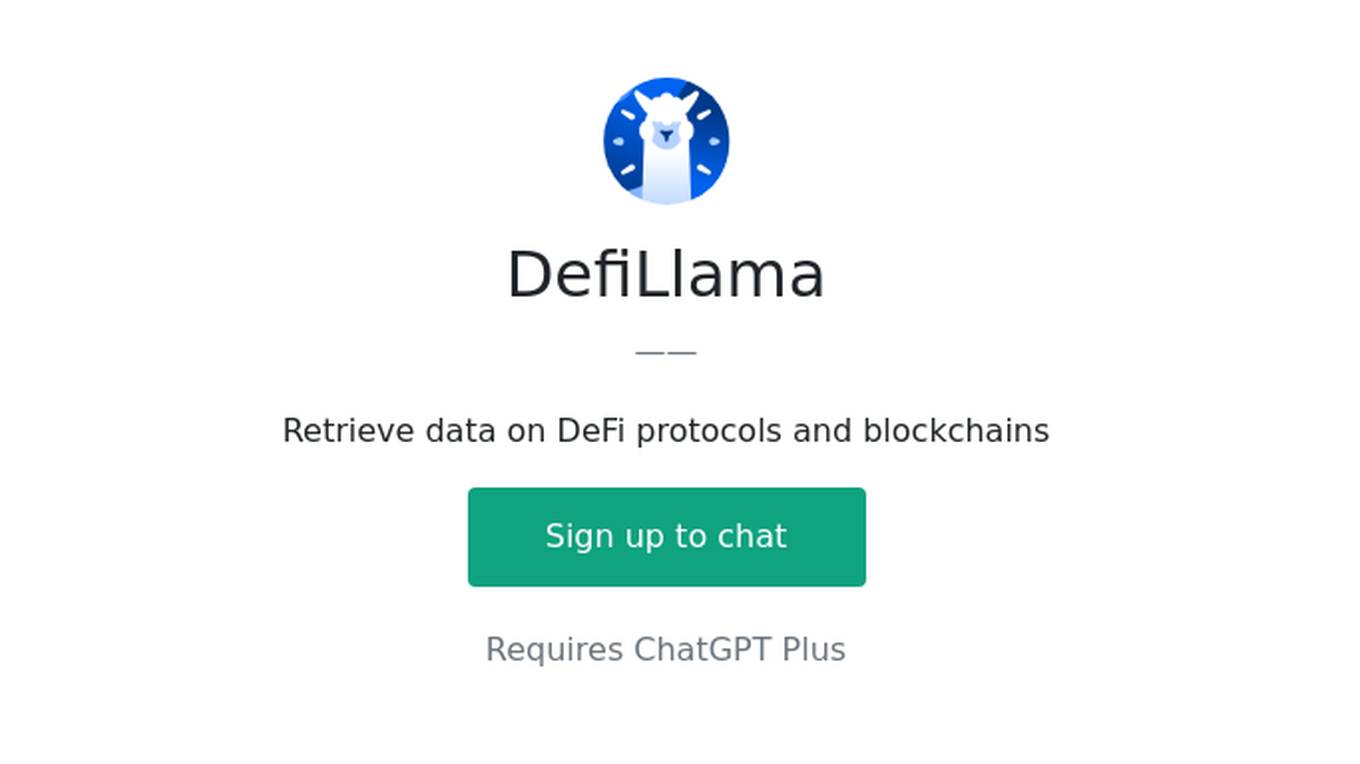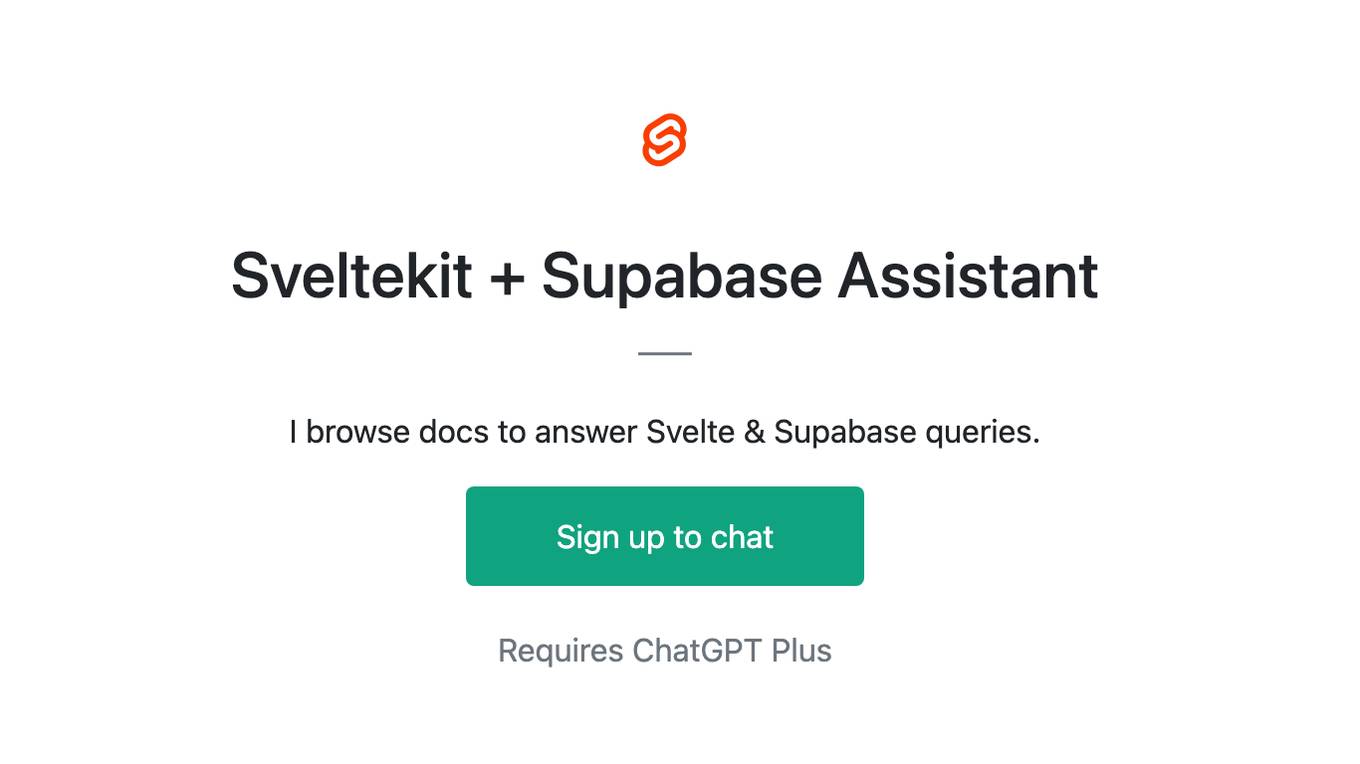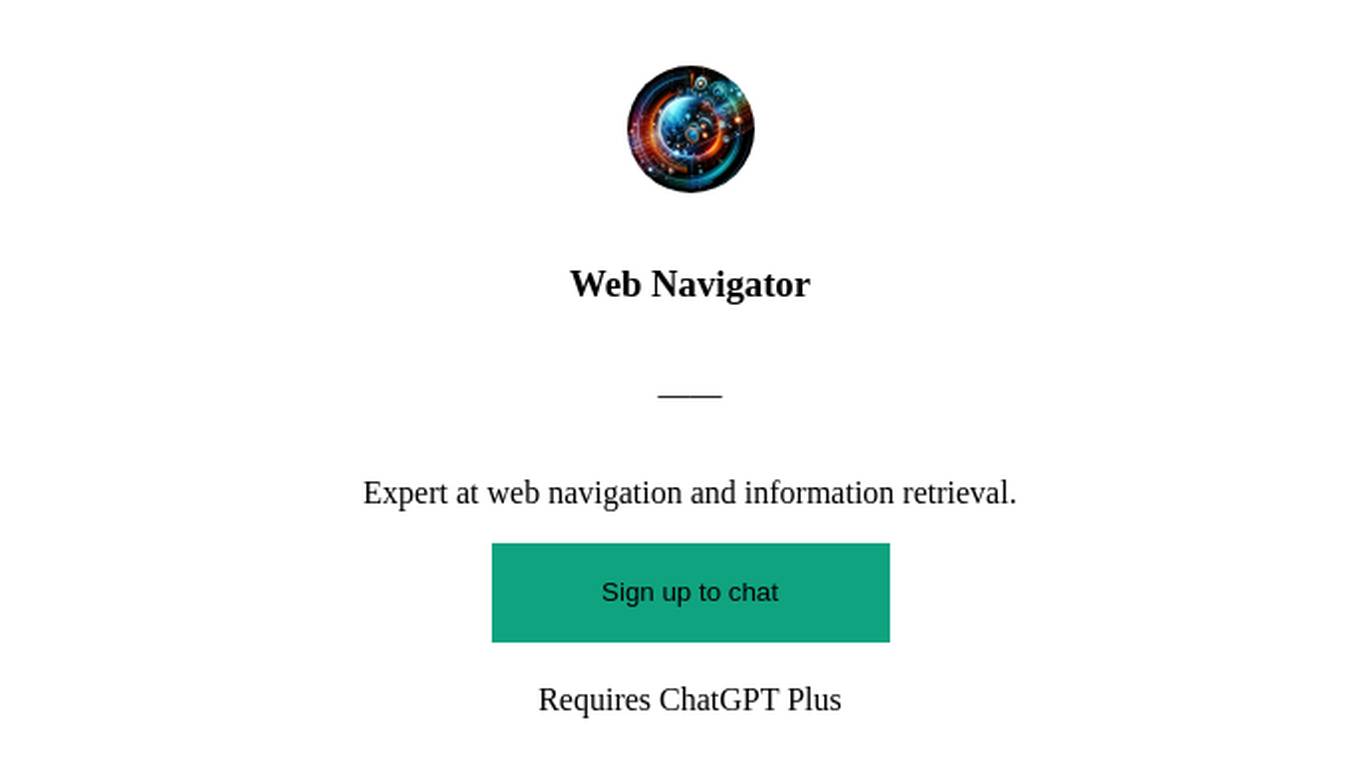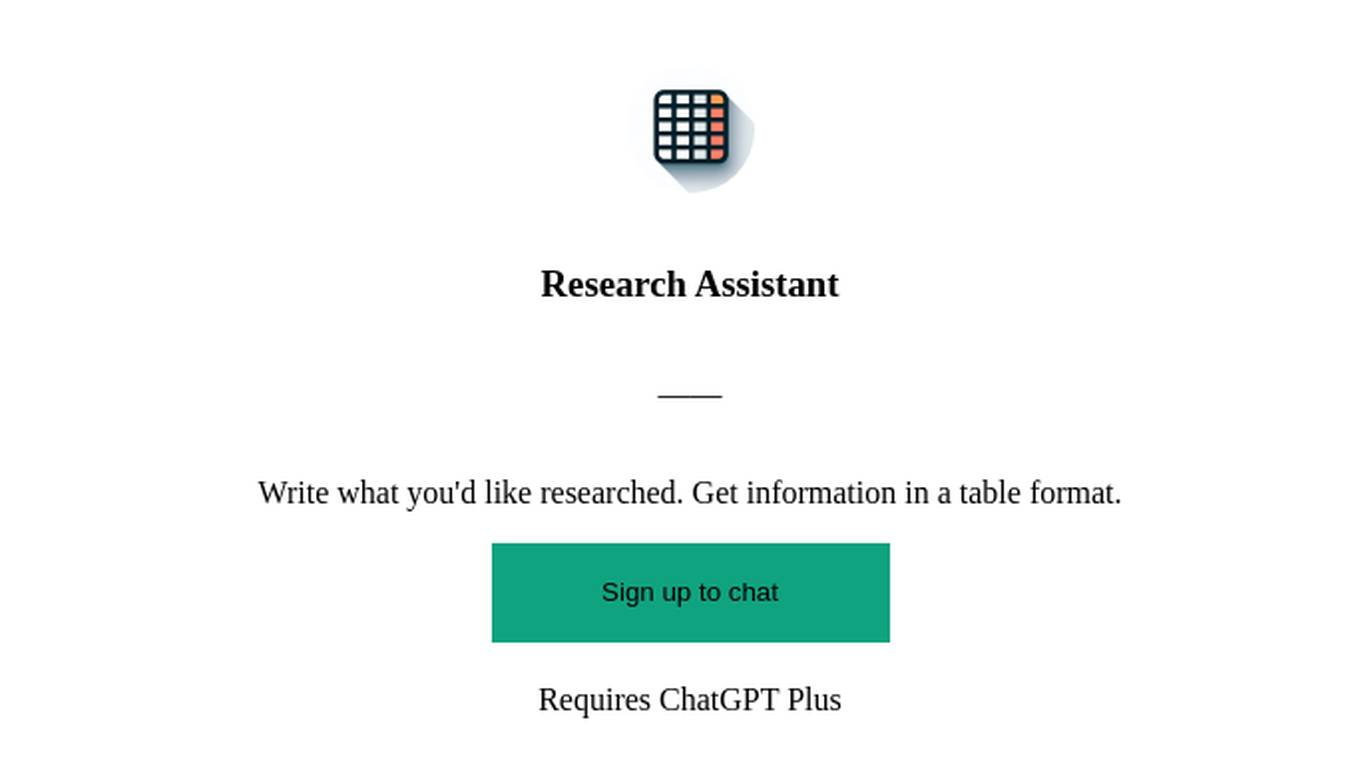Best AI tools for< Retrieve Augmented Generation >
20 - AI tool Sites
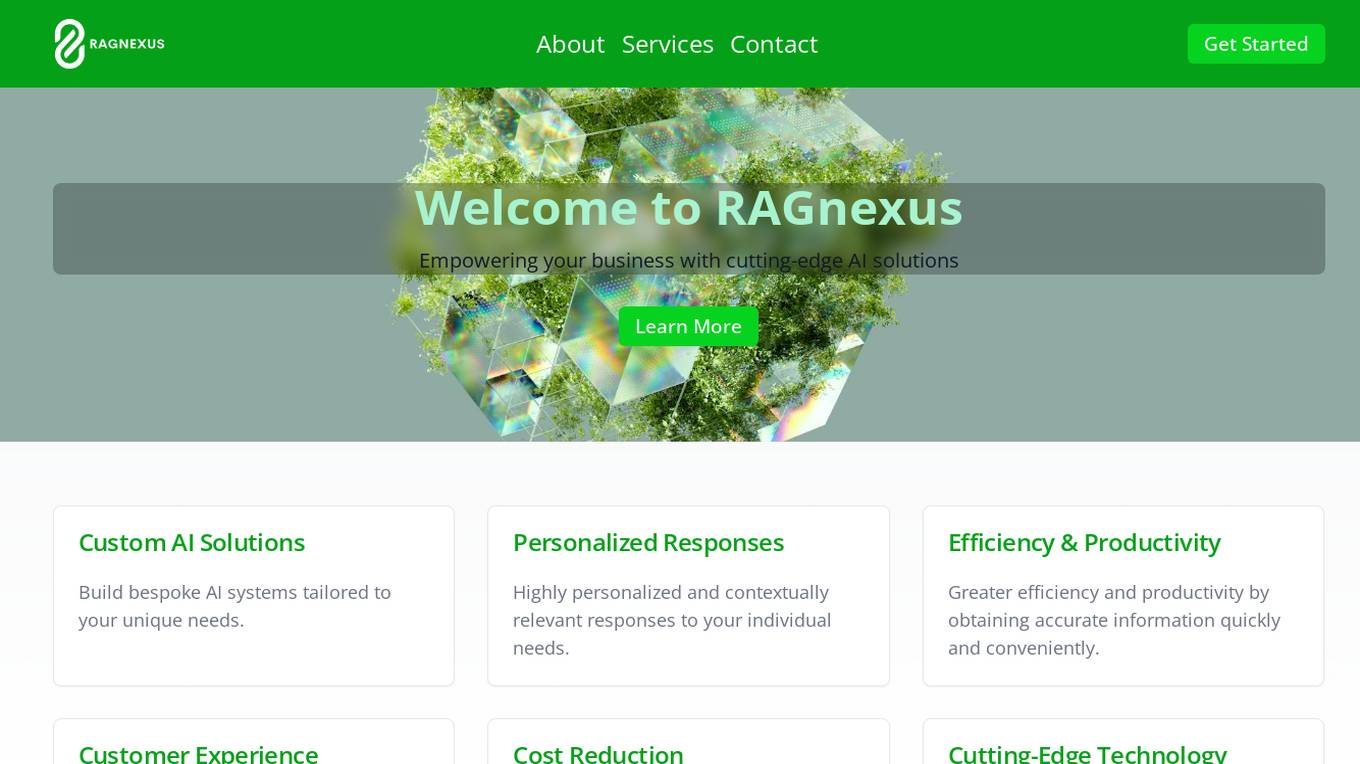
RAGnexus
RAGnexus is a company that specializes in creating personalized AI assistants using RAG (Retriever-Augmented Generation) technology. Their assistants are designed to provide highly personalized and contextually relevant responses to clients' individual needs. RAGnexus uses private information provided by customers to ensure that responses are accurate and tailored to each specific use case. Retriever-Augmented Generation (RAG) technology uses a two-step approach for generating responses: first, it retrieves relevant information from a database, and then it uses that information to generate accurate and context-specific answers.
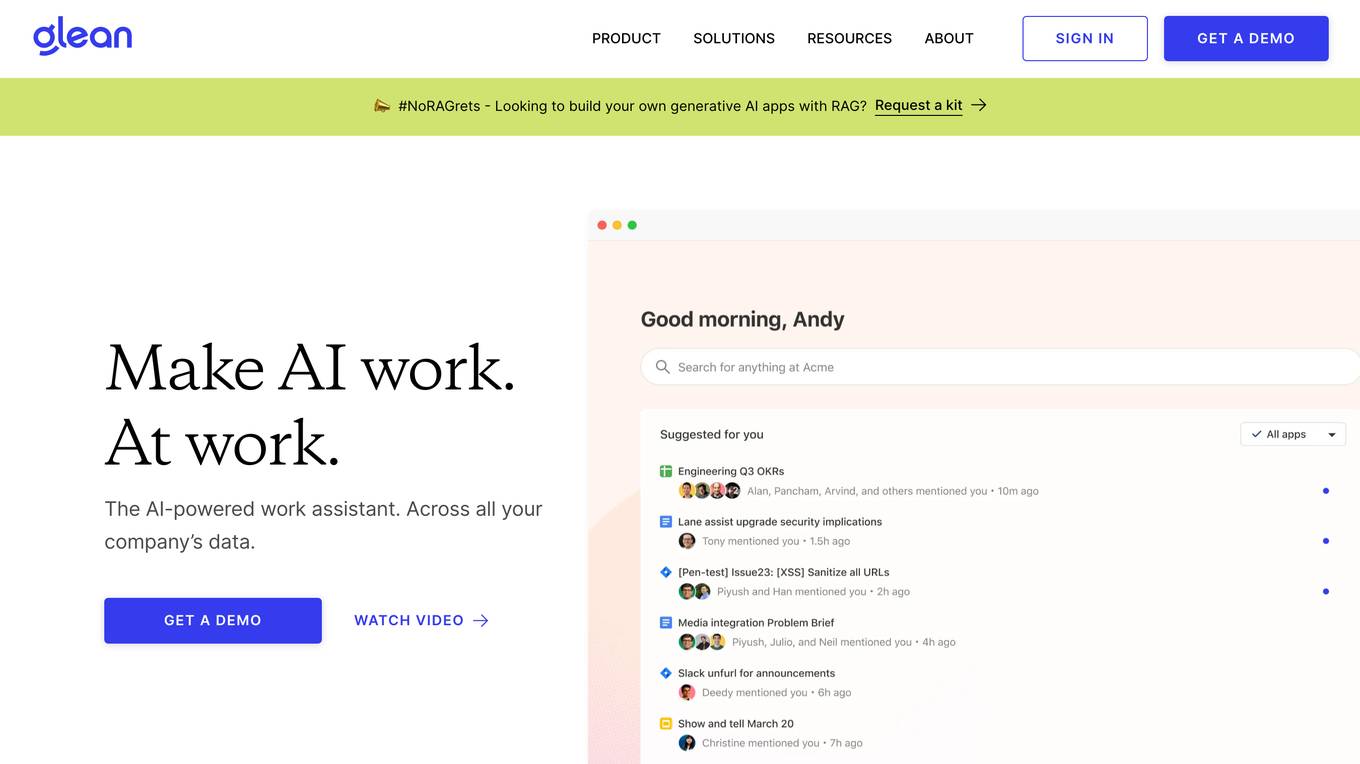
Glean
Glean is an AI-powered work assistant that helps teams harness generative AI and make better decisions faster. It connects all of your company's data across all of the content, people, and interactions in your organization. Glean's advanced personalization ensures that answers are tailored to who you are, who you work with, and what you're working on. Its Retrieval Augmented Generation (RAG) retrieves the most relevant information and ensures that LLMs answer with the most up-to-date knowledge.

Keepi
Keepi is a personal knowledge AI tool that allows users to capture, organize, and retrieve their knowledge effortlessly. By leveraging AI technology, Keepi helps users save and learn from their ideas, documents, and images, creating valuable insights. Users can access their personal knowledge on the go or in the office, enhancing their productivity and decision-making. Keepi.ai aims to provide users with a seamless experience in managing and utilizing their knowledge effectively.
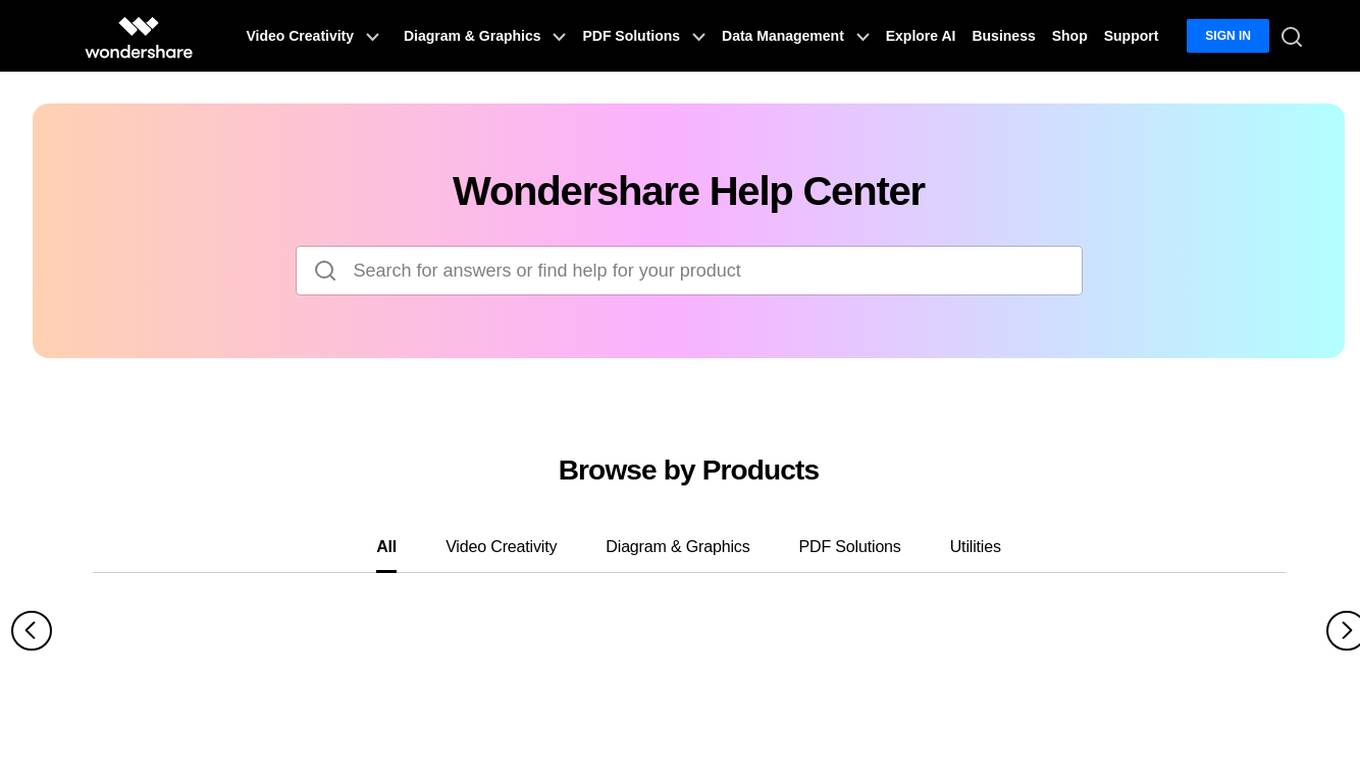
Wondershare Help Center
Wondershare Help Center provides comprehensive support for Wondershare products, including video editing, video creation, diagramming, PDF solutions, and data management. It offers a wide range of resources such as tutorials, FAQs, troubleshooting guides, and access to customer support.
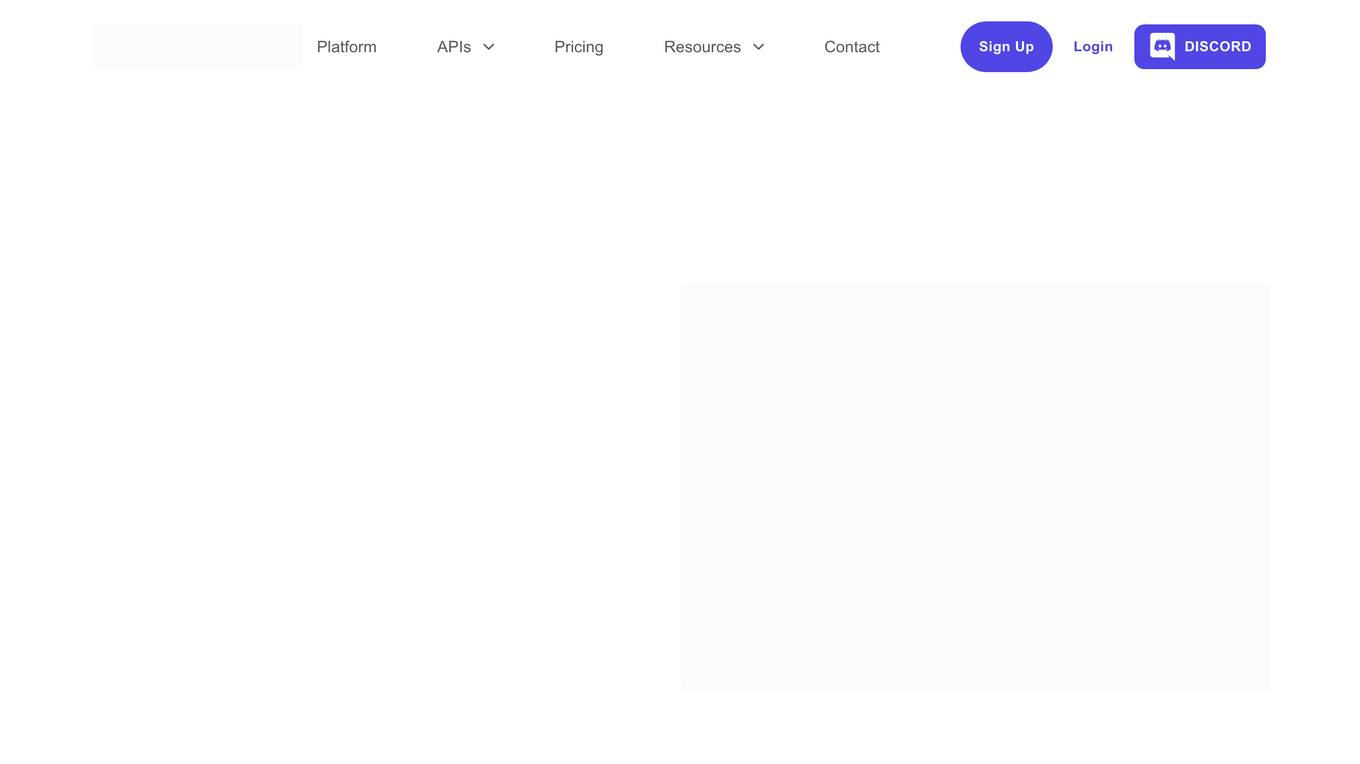
Extracta.ai
Extracta.ai is an AI data extraction tool for documents and images that automates data extraction processes with easy integration. It allows users to define custom templates for extracting structured data without the need for training. The platform can extract data from various document types, including invoices, resumes, contracts, receipts, and more, providing accurate and efficient results. Extracta.ai ensures data security, encryption, and GDPR compliance, making it a reliable solution for businesses looking to streamline document processing.
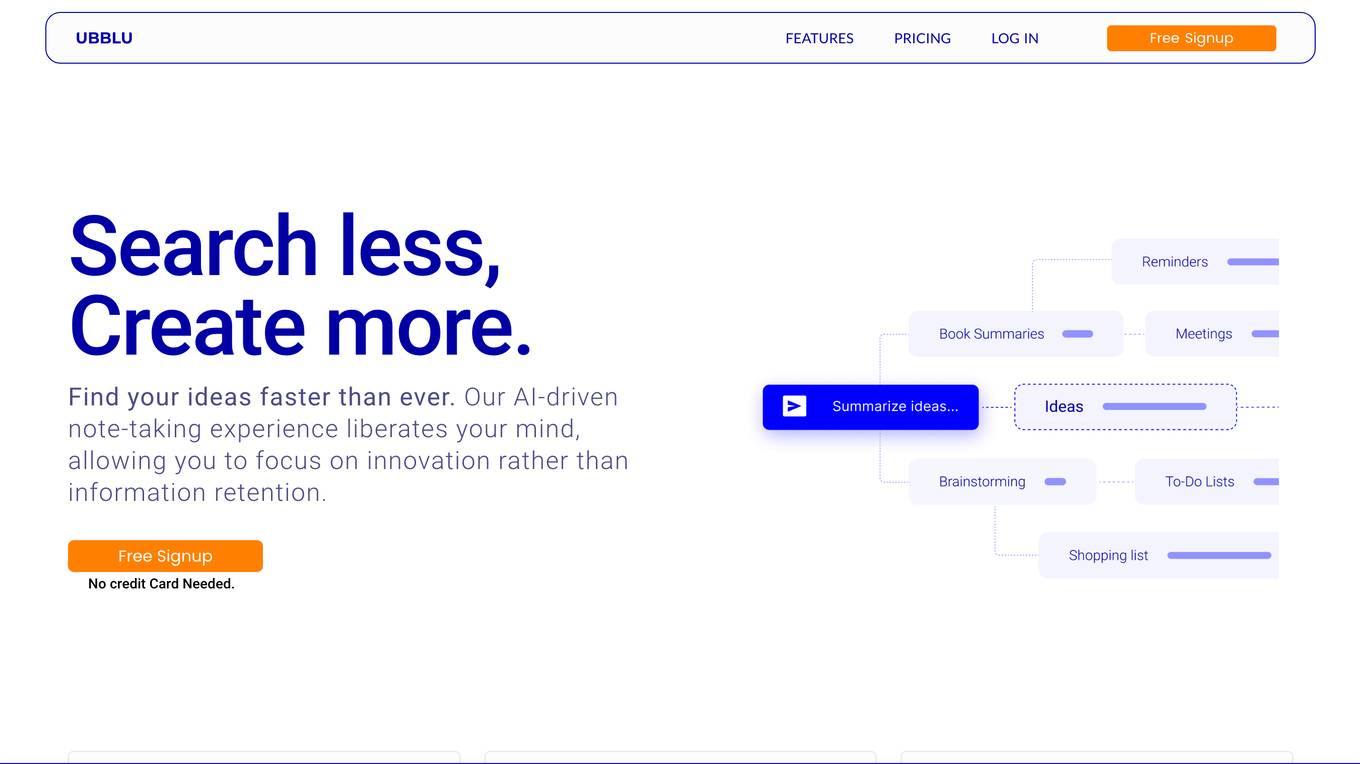
Ubblu
Ubblu is an AI-driven note-taking application that aims to help users search less and create more by providing a seamless experience for capturing, organizing, and retrieving ideas and information. It offers features like note capture, card writing, tag categorization, instant knowledge retrieval, and 'Ask' functionality for quick access to stored information. Ubblu is designed to liberate users' minds from information retention, allowing them to focus on innovation and creativity. The application is desktop-based with a mobile version in development.
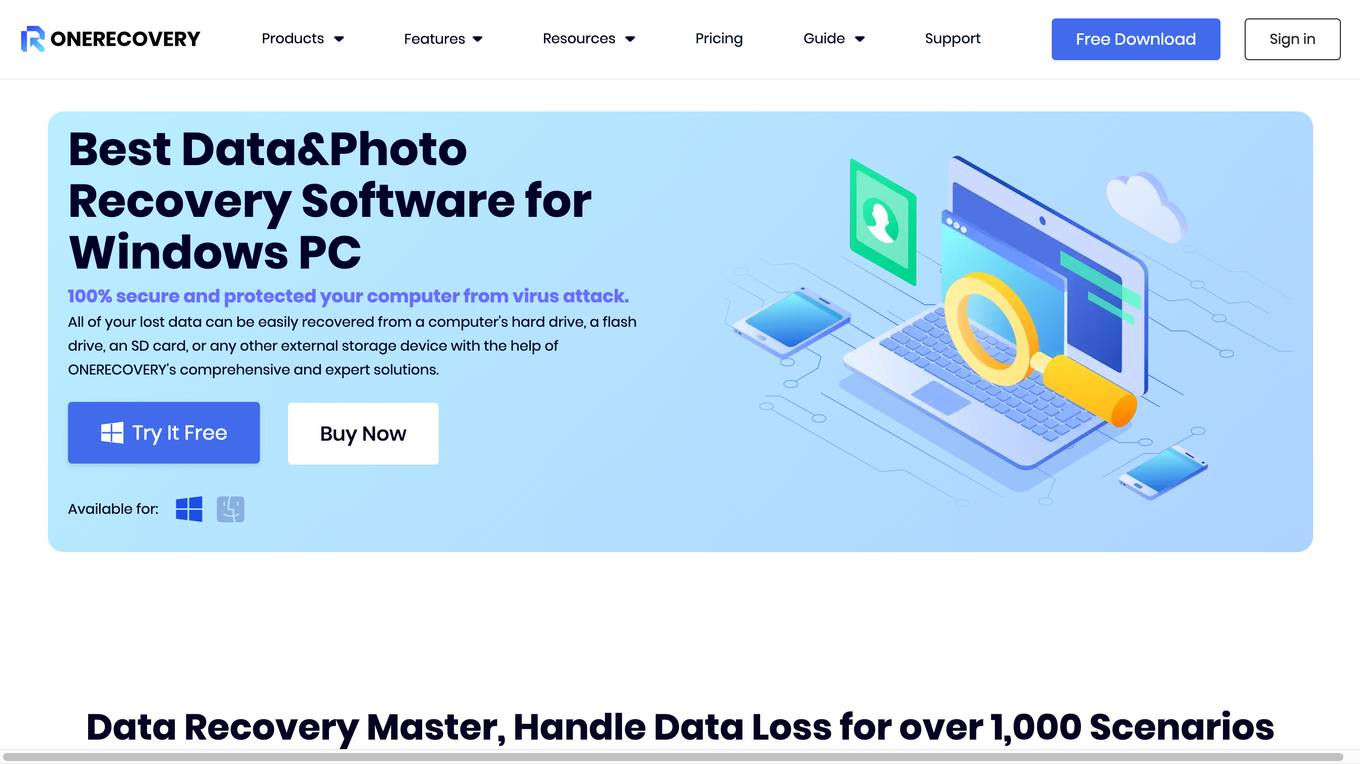
ONERECOVERY
ONERECOVERY is a professional data recovery solution for Windows that offers comprehensive and expert solutions to recover lost data from various storage devices. The software is designed to handle data loss for over 1,000 scenarios, including accidental deletion, formatting errors, virus attacks, and more. ONERECOVERY provides features such as file recovery for Windows and Mac, file duplicate finder, photo and video recovery, hard drive recovery, SD card data recovery, and more. With a user-friendly interface, quick and efficient scanning, and compatibility with diverse operating systems and storage devices, ONERECOVERY is a reliable and secure data recovery tool trusted by millions of users worldwide.
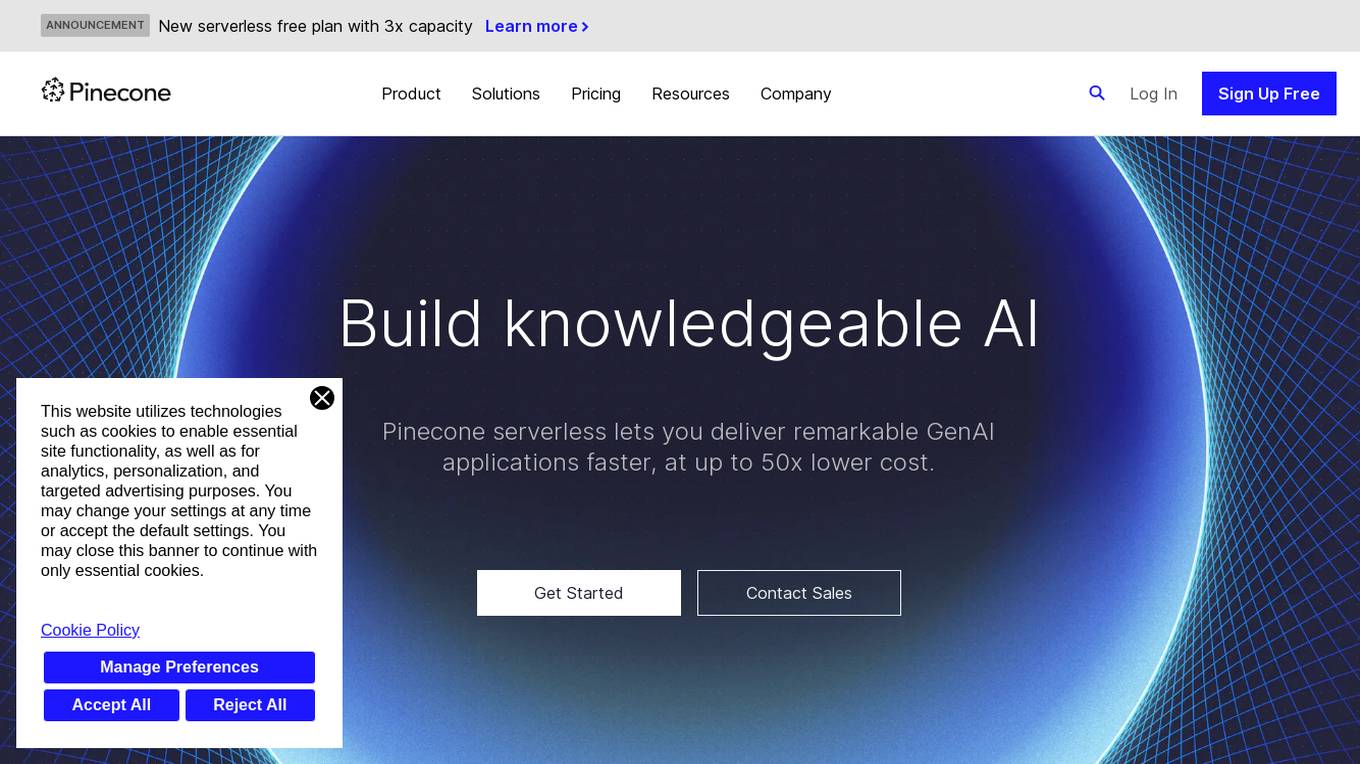
Pinecone
Pinecone is a vector database designed to build knowledgeable AI applications. It offers a serverless platform with high capacity and low cost, enabling users to perform low-latency vector search for various AI tasks. Pinecone is easy to start and scale, allowing users to create an account, upload vector embeddings, and retrieve relevant data quickly. The platform combines vector search with metadata filters and keyword boosting for better application performance. Pinecone is secure, reliable, and cloud-native, making it suitable for powering mission-critical AI applications.
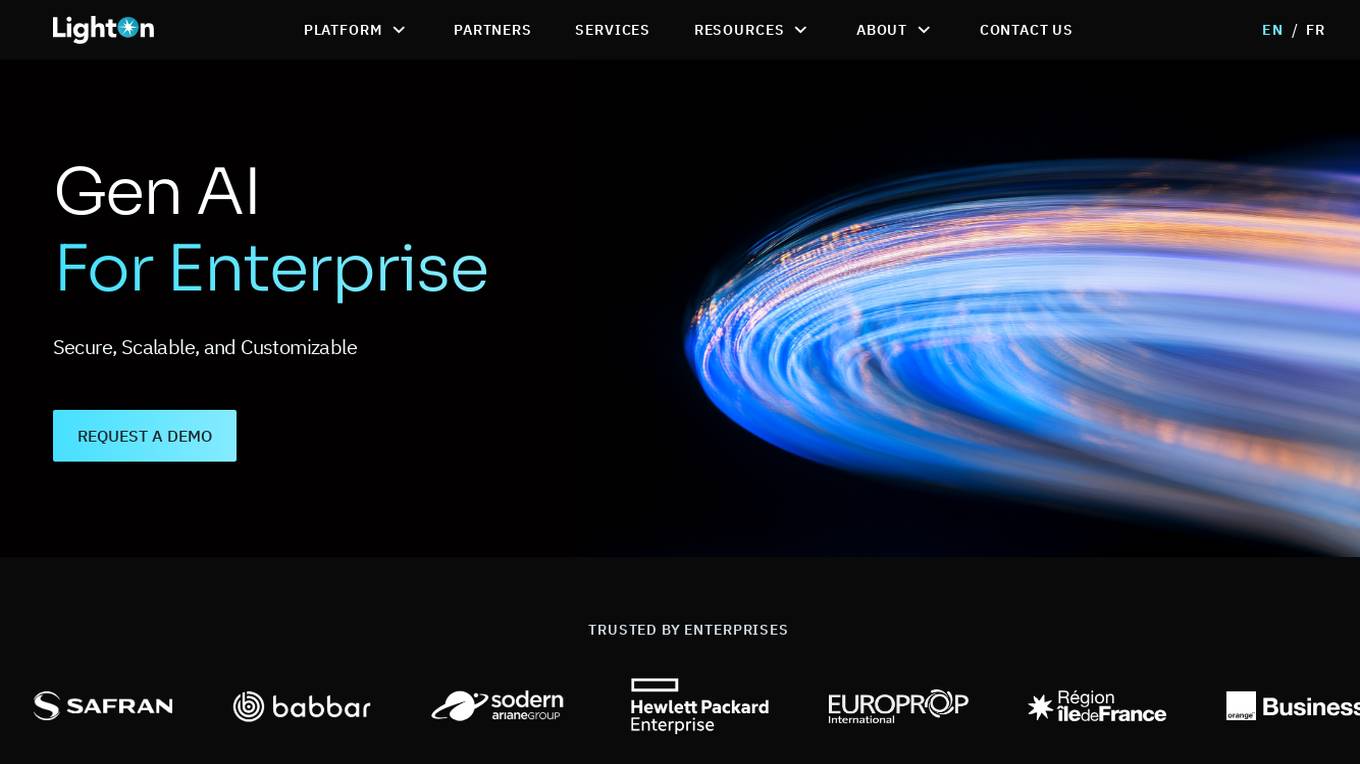
Gen AI For Enterprise
Gen AI For Enterprise is an AI application that offers a secure, scalable, and customizable platform for enterprises. It provides a private chat feature, enhanced knowledge retrieval, and custom business case development. The application is trusted by various industries and empowers teams to work better by leveraging advanced AI models and APIs. It ensures robust security, compliance with industry standards, and simplified user management. Gen AI For Enterprise aims to transform businesses by providing innovative AI solutions.
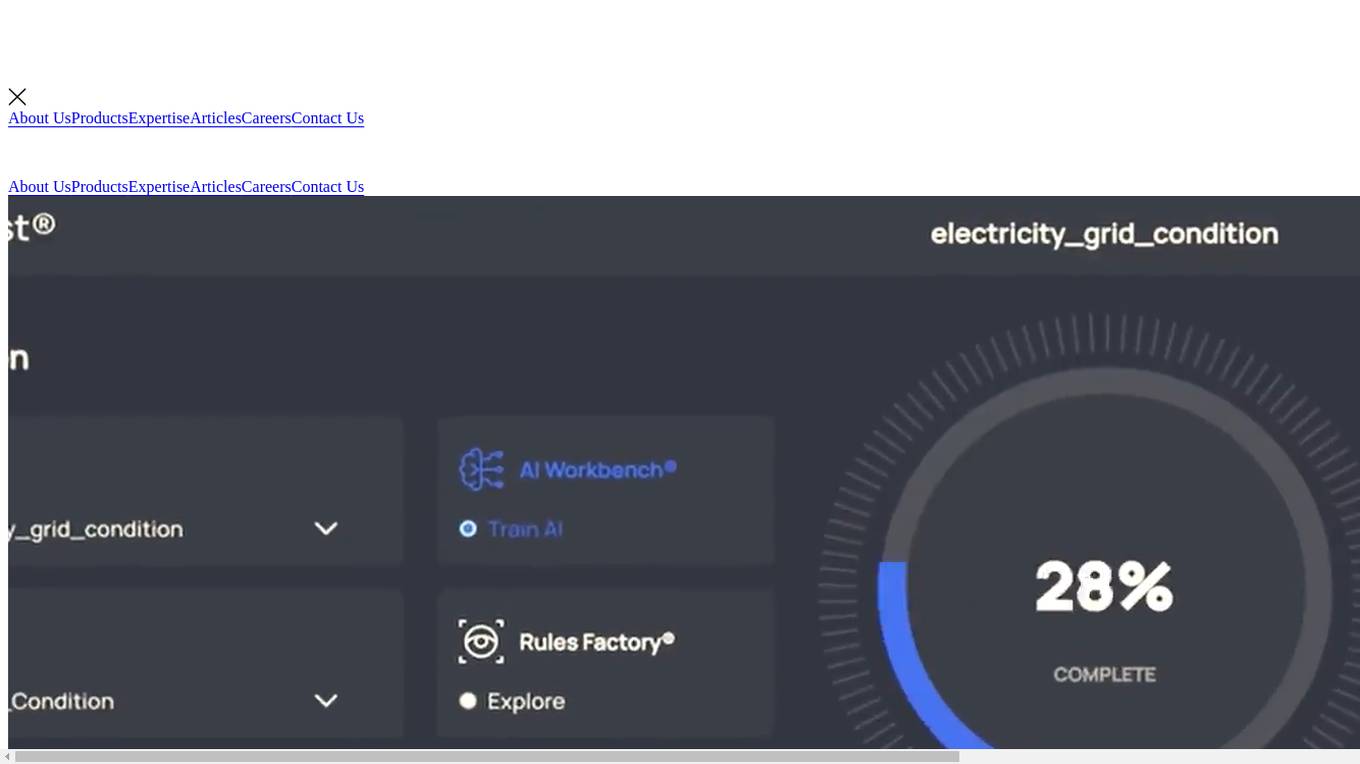
IntelliumAI
IntelliumAI is a leading AI application provider specializing in secure AI solutions for data-sensitive industries. Their flagship AI-powered assistant, BoostBot, empowers organizations to unlock their knowledge potential securely. Additionally, AiBoost offers a comprehensive AI platform tailored for advanced engineering professionals, enabling teams to leverage powerful AI capabilities without extensive data science expertise. IntelliumAI is trusted by industry leaders for its transparent and compliance-ready AI solutions.
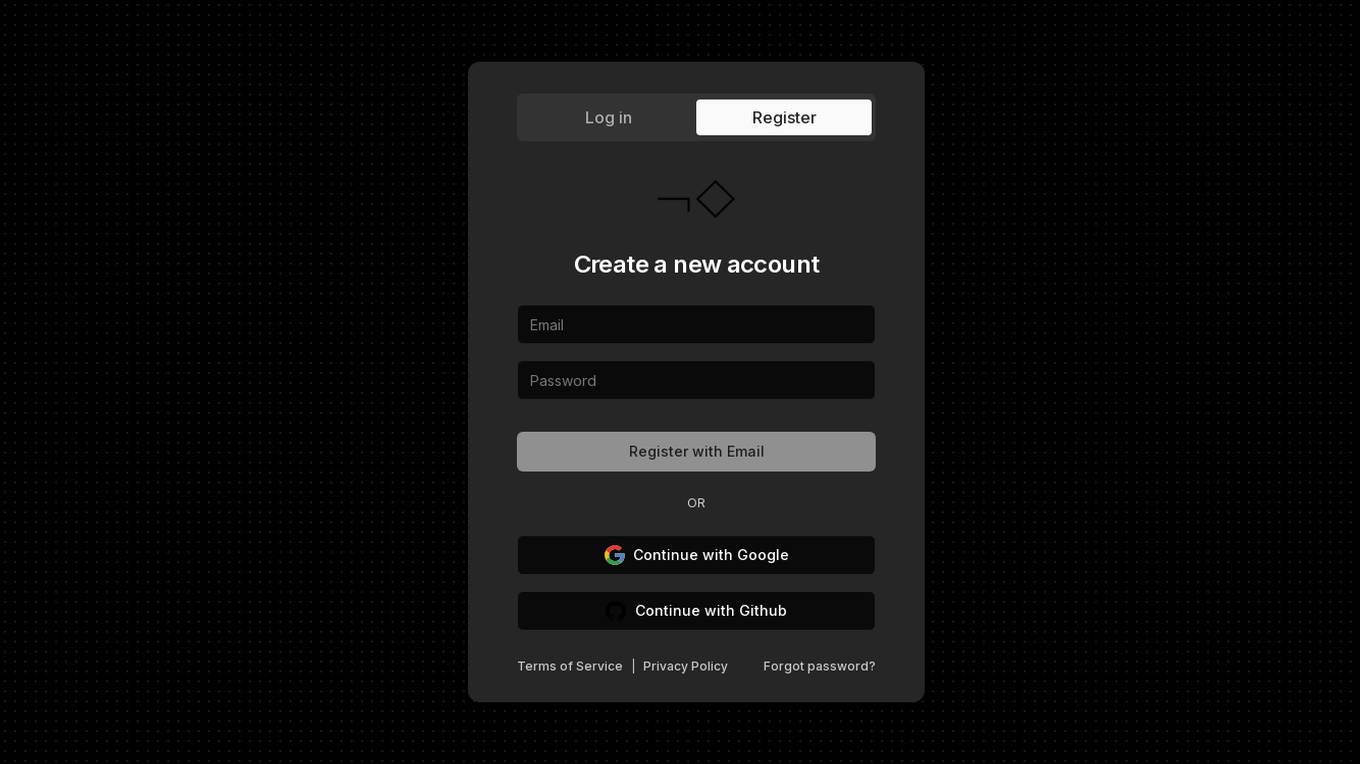
Not Diamond
Not Diamond is an AI-powered chatbot application designed to provide users with a seamless and efficient conversational experience. It serves as a virtual assistant capable of handling a wide range of tasks and inquiries. With its advanced natural language processing capabilities, Not Diamond aims to revolutionize the way users interact with technology by offering personalized and intelligent responses in real-time. Whether you need assistance with information retrieval, task management, or simply engaging in casual conversation, Not Diamond is the ultimate chatbot companion.
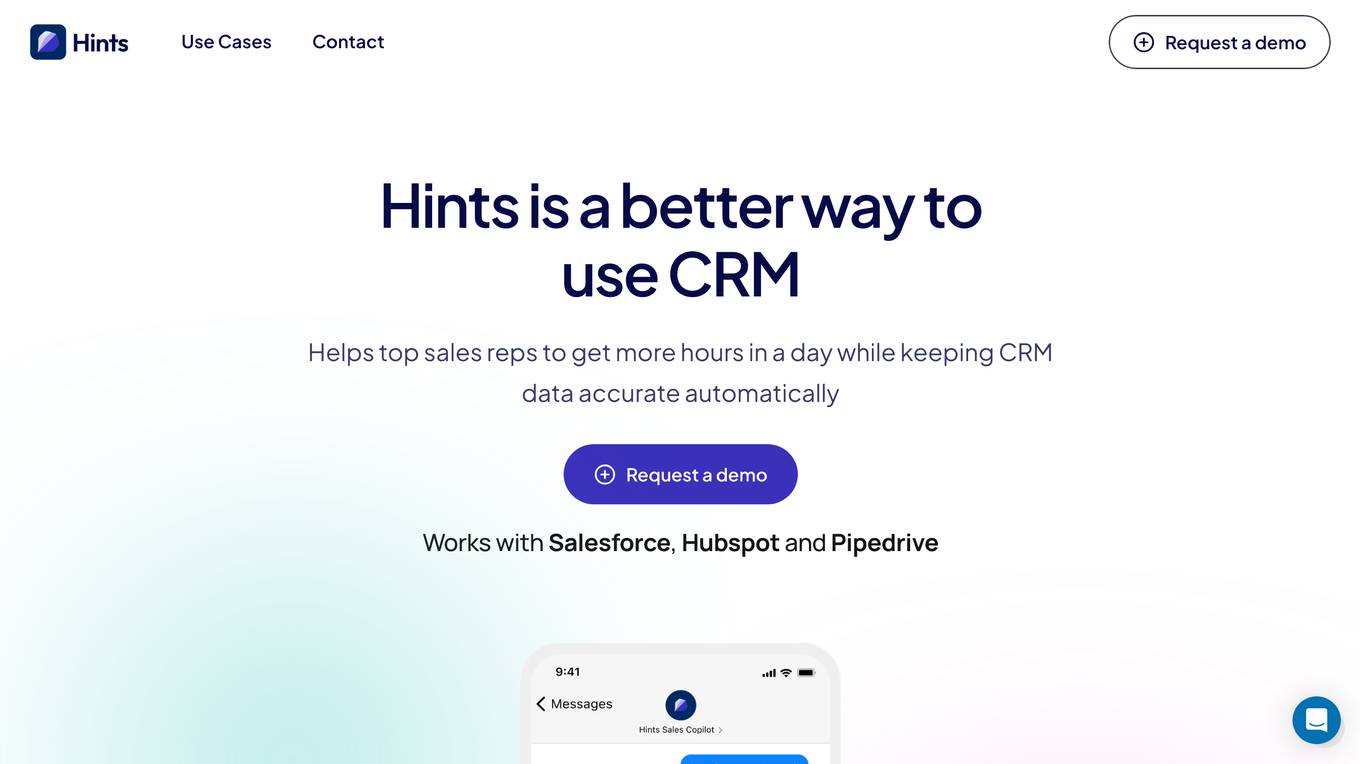
Hints
Hints is a sales AI assistant that helps sales reps to get more hours in a day while keeping CRM data accurate automatically. It works with Salesforce, Hubspot, and Pipedrive. With Hints, sales reps can log and retrieve CRM data on any device with chat and voice, get guidance on their next steps, and reminders of what's missing. Hints can also help sales reps to create complex CRM updates in seconds, find duplicates, suggest actions, automatically create associations, and look up sales data through chat and voice commands. Hints can assist sales reps in building the perfect sales process for their team and provides fast onboarding for new sales reps.
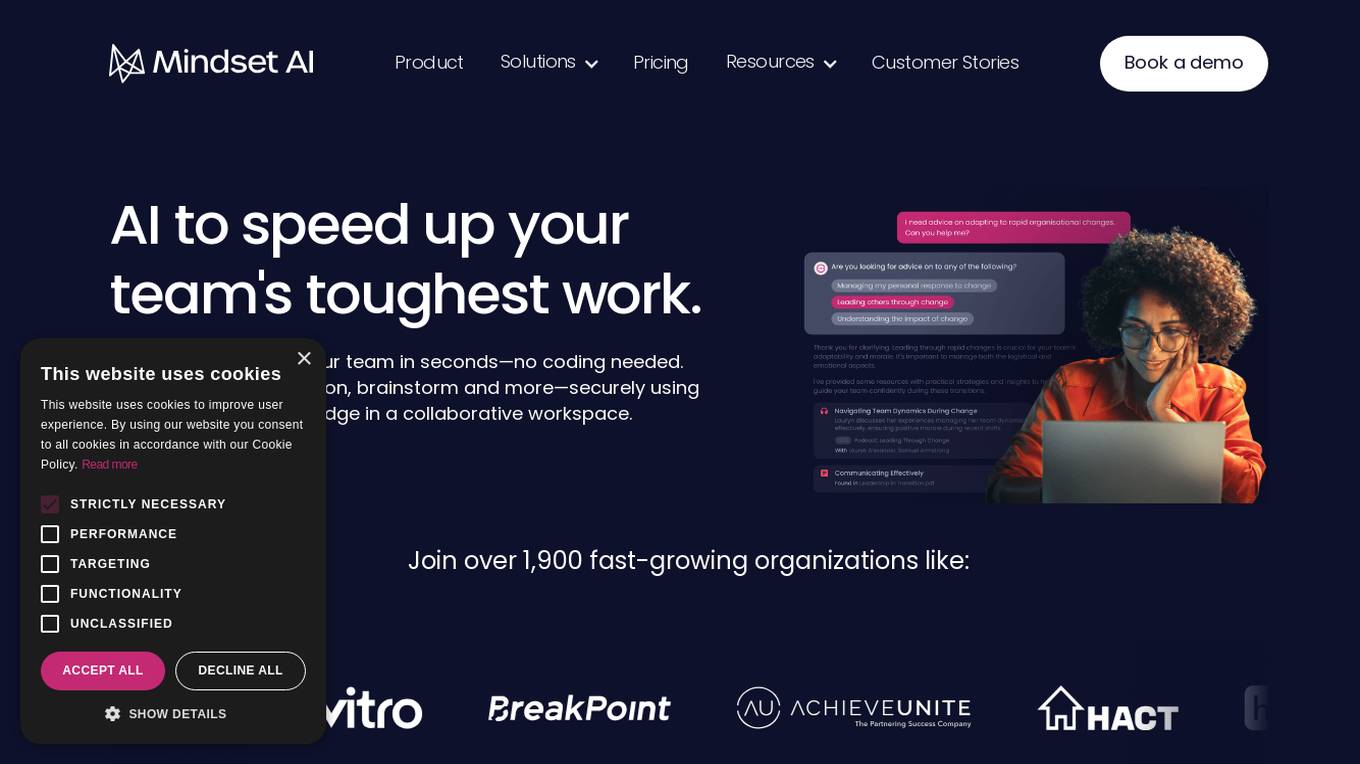
Mindset AI
Mindset AI is an AI tool that enables users to create AI agents in seconds using simple language. It helps speed up teams' work by allowing the creation of AI agents without the need for coding. Users can write, retrieve information, brainstorm, and more securely using their company's knowledge in a collaborative workspace. Mindset AI offers features such as AI agent builder, integrated knowledge banks, guided conversational search, capabilities for process description, and AI model selector.
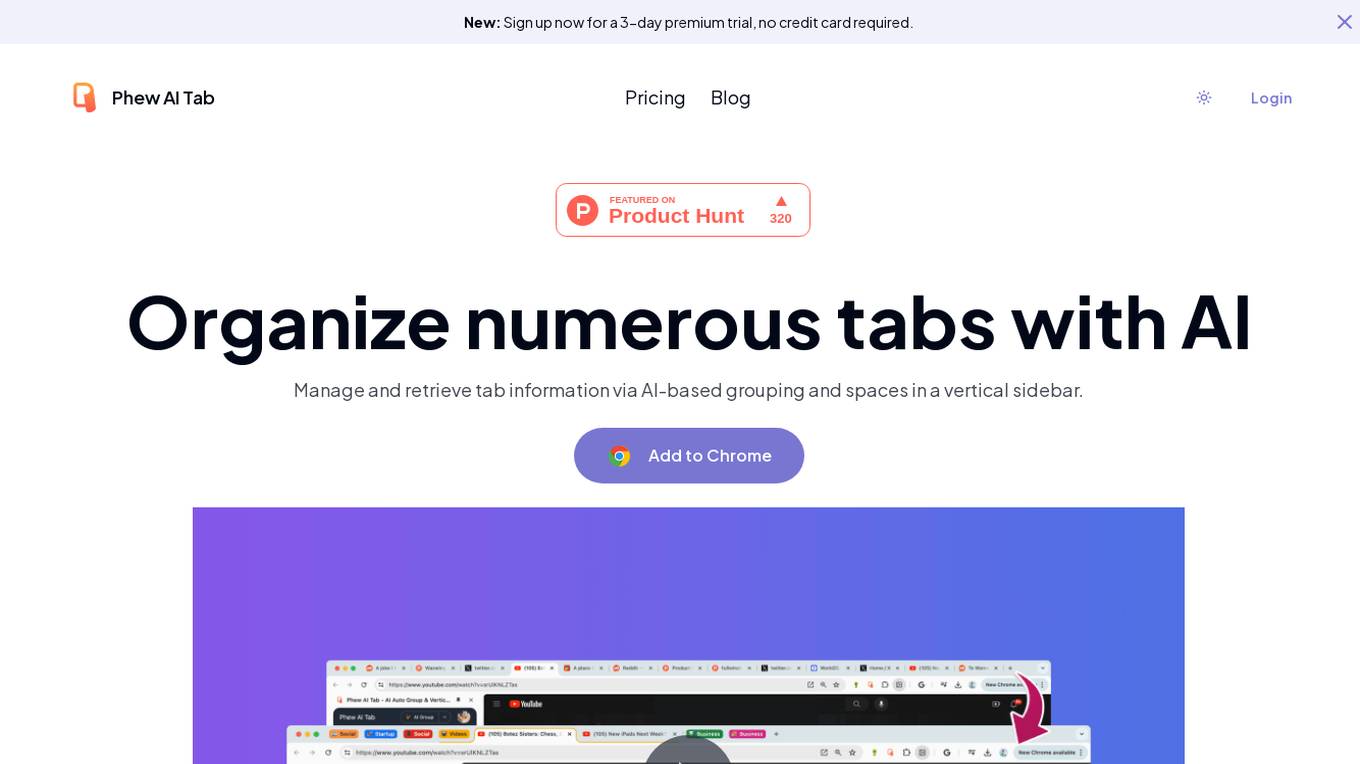
Phew AI Tab
Phew AI Tab is an AI-powered tab management tool that helps users organize and retrieve tab information efficiently. It utilizes AI-based grouping and spaces in a vertical sidebar to streamline tab management. With features like AI Grouping & Auto Collapse, AI Analyzing, AI Search, and AI-based Space & Cloud Sync, Phew AI Tab aims to enhance productivity and user experience. The tool ensures privacy with military-grade protection and offers seamless synchronization across devices.
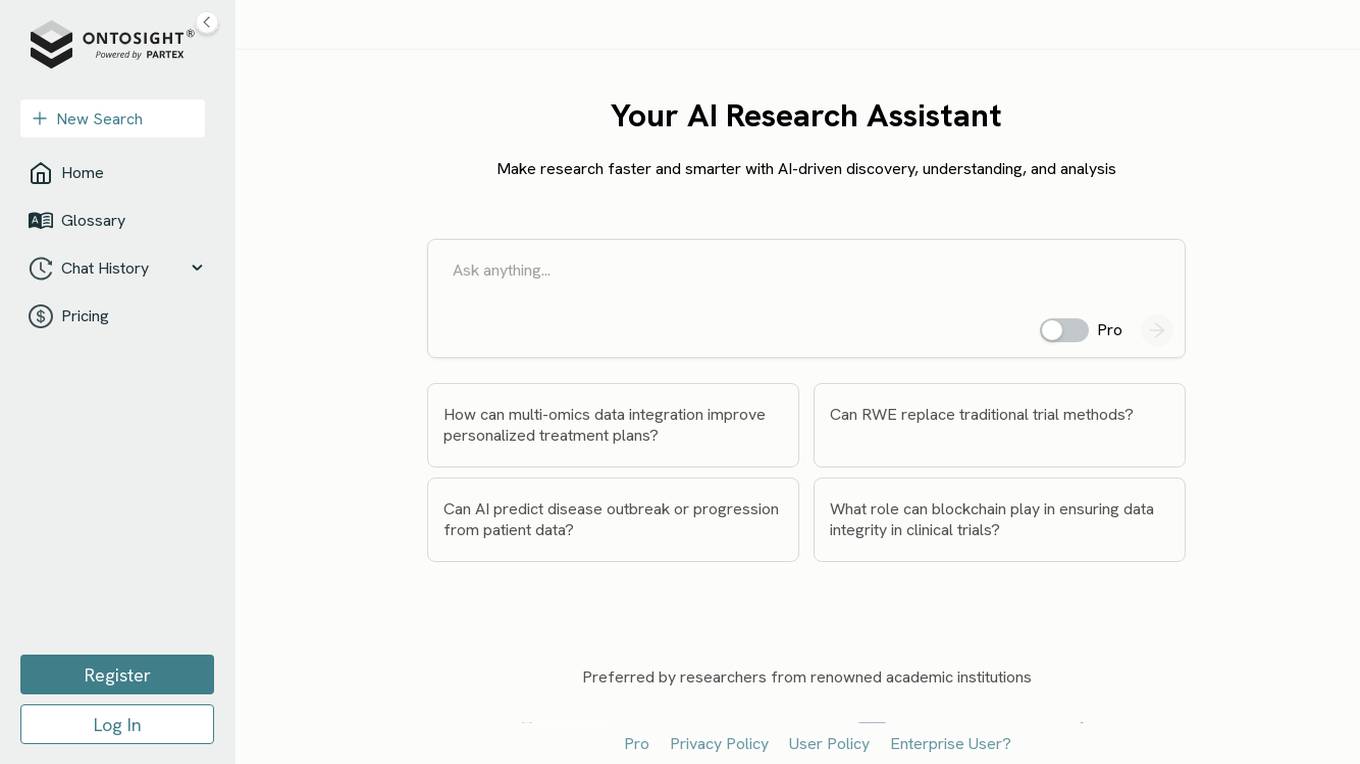
Ontosight.ai
Ontosight.ai is an AI-powered research assistant designed to provide users with smarter insights. It leverages artificial intelligence to assist in research tasks, offering advanced capabilities for data analysis and information retrieval. By utilizing cutting-edge technology, Ontosight.ai aims to streamline the research process and enhance decision-making through intelligent data processing.
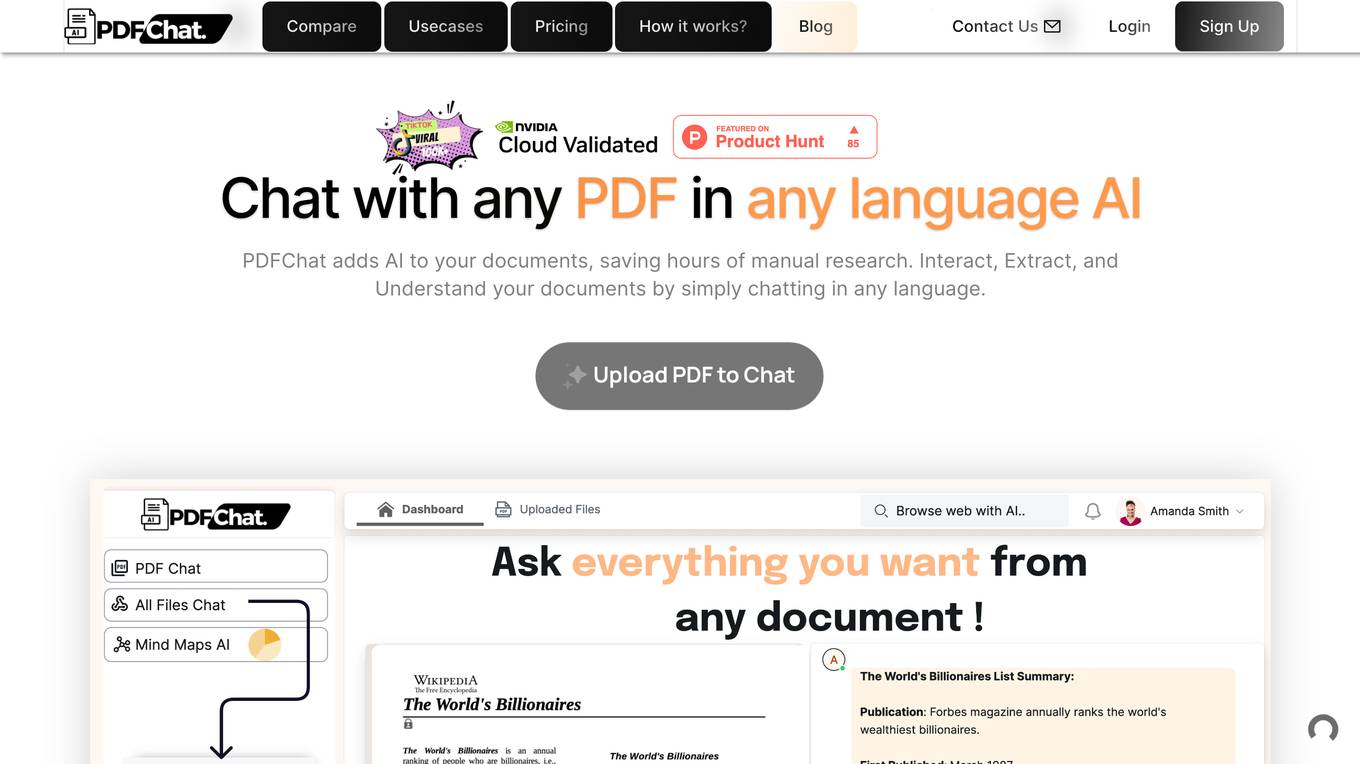
xPDF AI by PDFChat
xPDF AI by PDFChat is a personal AI assistant designed for PDF files. It offers advanced features to analyze tables, figures, and text from PDF documents, providing users with instant answers and insights. The AI assistant uses a chat interface for effortless interaction and is capable of summarizing PDF files, retrieving relevant figures, processing tables intelligently, and performing accurate calculations. Users can also benefit from voice chat, advanced search tools, performance analytics, report generation, and document assistance. With over 10,000 users trusting the platform, PDFChat aims to revolutionize document analysis and enhance productivity.

GitHub Buoyant
GitHub Buoyant is an AI-powered marine data aggregator tool that fetches marine conditions from NOAA via various free APIs. It provides wave conditions, wind data, tide levels, and water temperature for coastal areas in the US. The tool offers a comprehensive marine report with detailed information on waves, wind, tides, water temperature, and weather forecasts. It includes a library for developers to integrate marine data into their own code and covers US mainland coastal waters, Great Lakes, Hawaii, Alaska, Puerto Rico, USVI, and Guam. The tool handles NOAA's data quirks and provides insights into the technical aspects of data processing and validation.
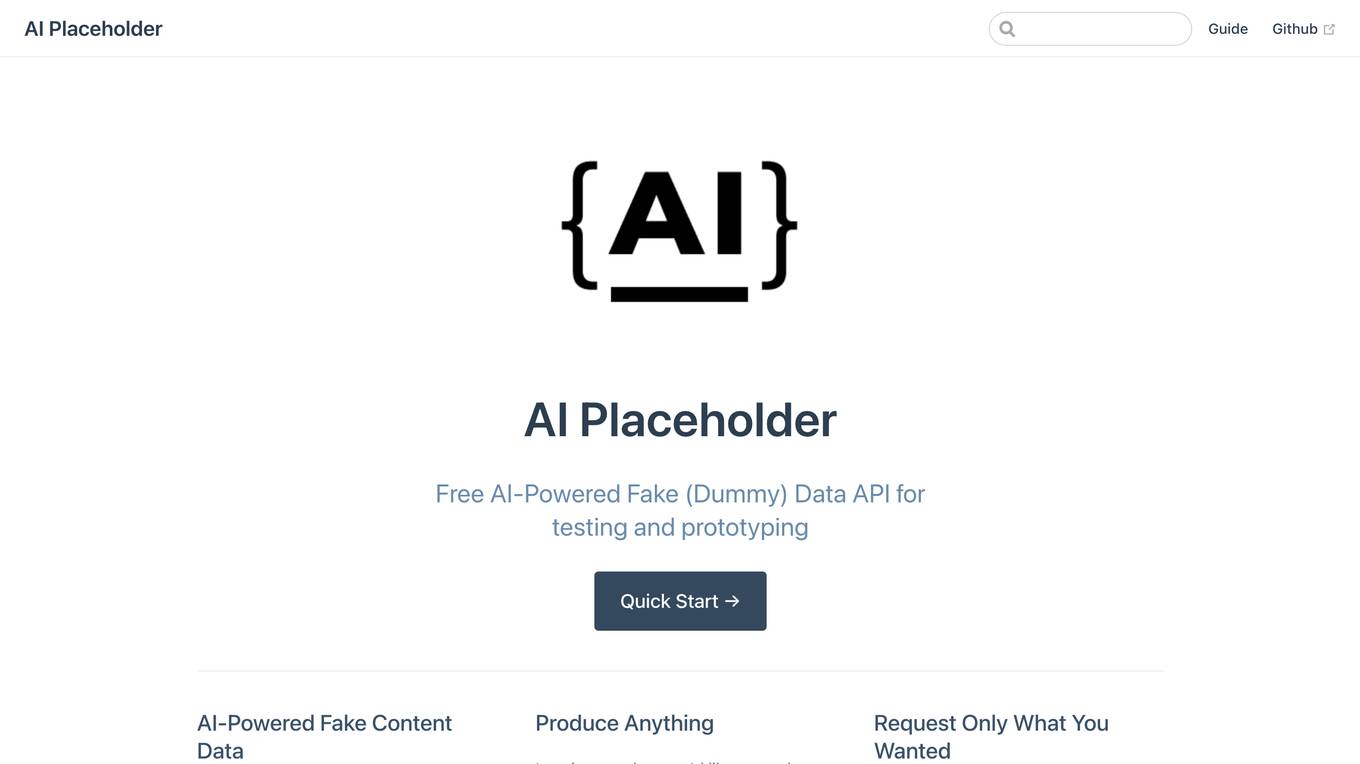
AI Placeholder
AI Placeholder is a free AI-Powered Fake or Dummy Data API for testing and prototyping. It leverages OpenAI's GPT-3.5-Turbo Model API to generate fake content. Users can directly use the hosted version or self-host it. The API allows users to generate any data they can think of, with the ability to specify rules for data retrieval. It supports various content types like tweets, posts, Instagram posts, and more. The application is designed to assist developers and testers in creating realistic but non-sensitive data for their projects.
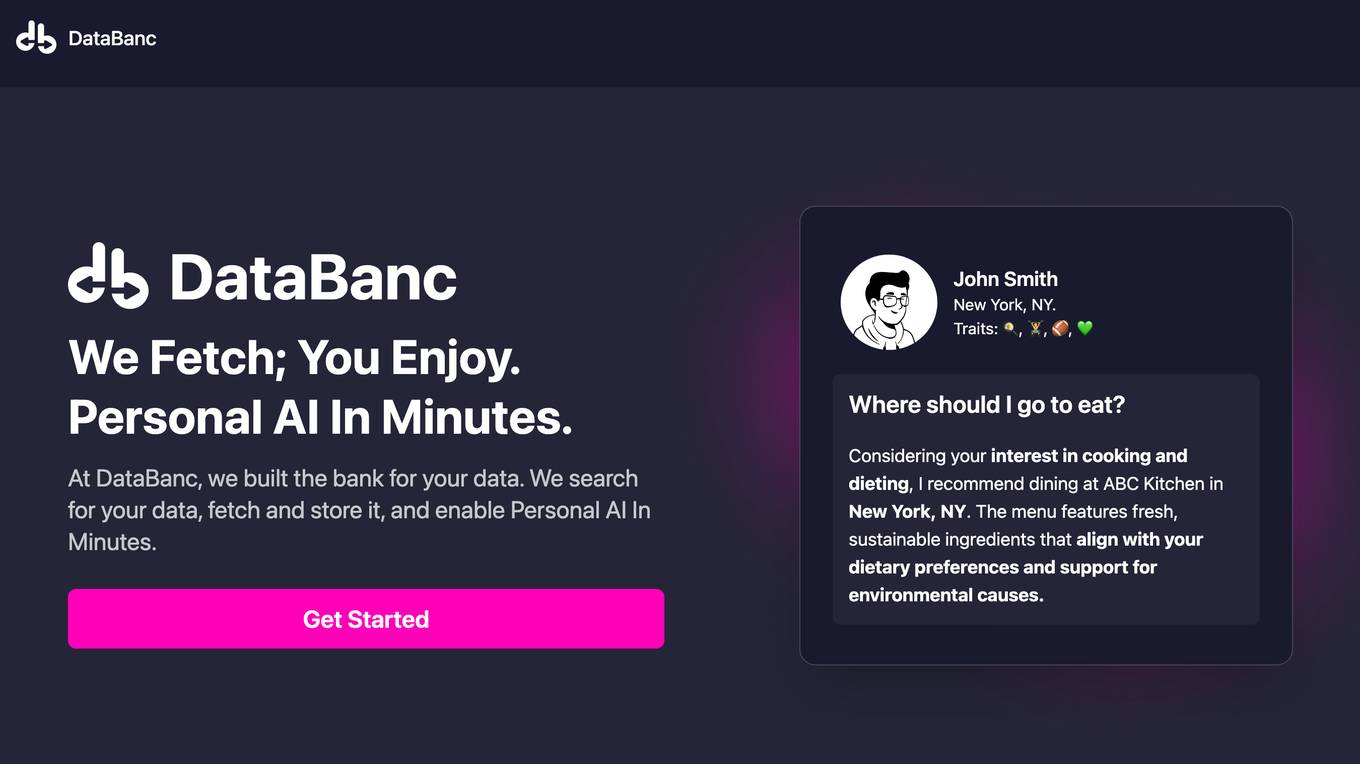
DataBanc
DataBanc is an AI-powered platform that serves as a data bank, allowing users to retrieve, store, and utilize their personal data for personalized experiences. It empowers individuals to take control of their data, enabling them to access insights and recommendations tailored to their preferences. DataBanc aims to revolutionize the way people interact with their data, offering a secure and user-friendly solution for managing personal information in the digital age.
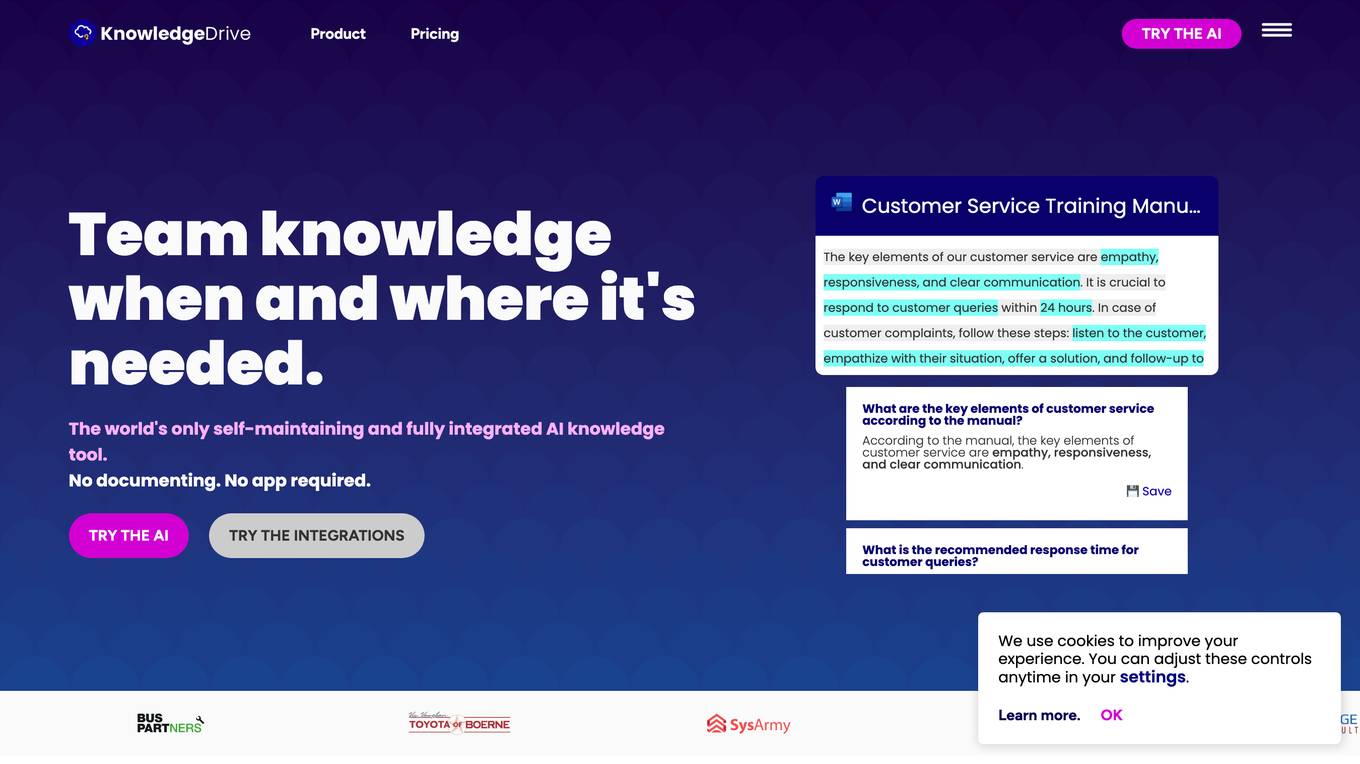
Knowledge Drive
Knowledge Drive is the world's only self-organizing, self-maintaining, and fully integrated work knowledge system. It utilizes AI technology to automatically build a knowledge base by extracting useful information from documents. The system ensures knowledge freshness, easy access to information, and seamless integration across various platforms like Microsoft Office 365, Google Workspace, and Slack. Knowledge Drive aims to revolutionize knowledge management and boost productivity in teams by providing a central source of truth and eliminating the need for manual documentation.
1 - Open Source AI Tools
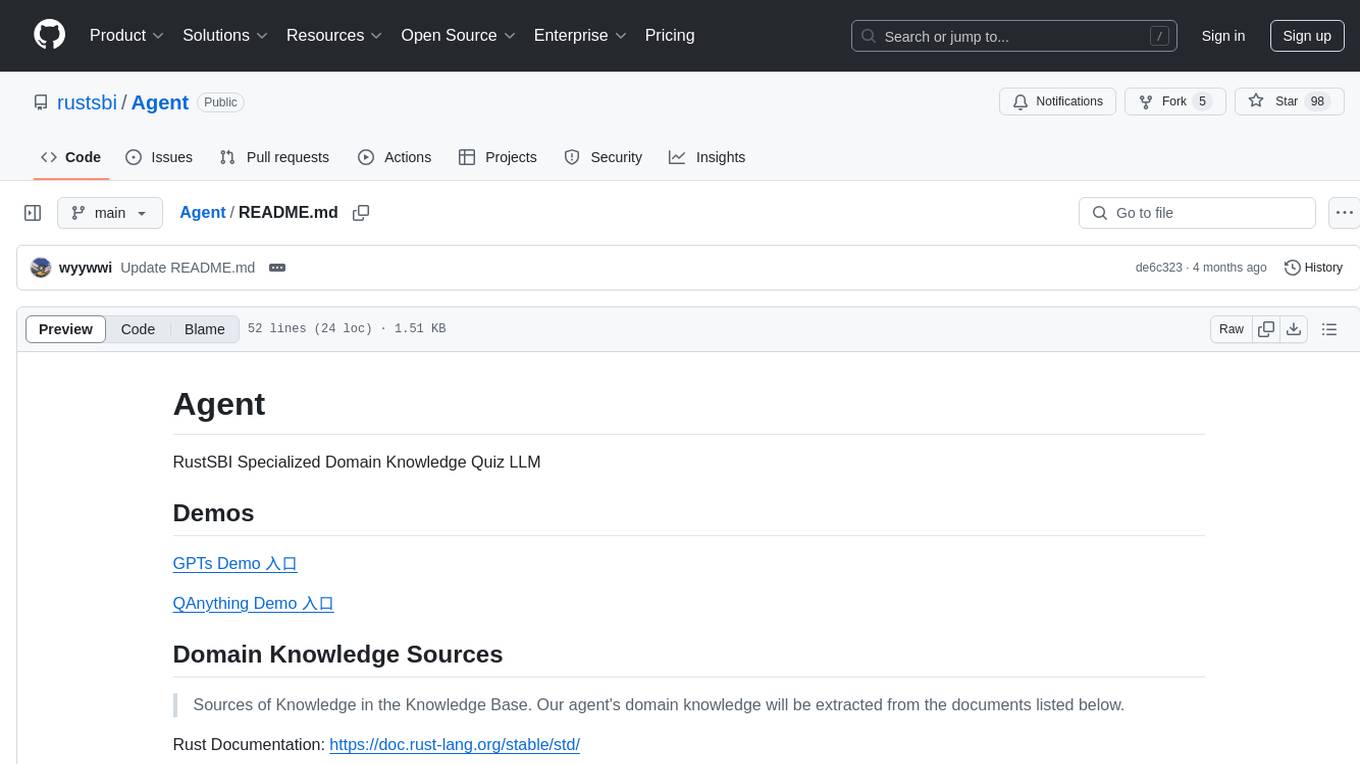
Agent
Agent is a RustSBI specialized domain knowledge quiz LLM tool that extracts domain knowledge from various sources such as Rust Documentation, RISC-V Documentation, Bouffalo Docs, Bouffalo SDK, and Xiangshan Docs. It also provides resources for LLM prompt engineering and RAG engineering, including guides and existing projects related to retrieval-augmented generation (RAG) systems.
18 - OpenAI Gpts
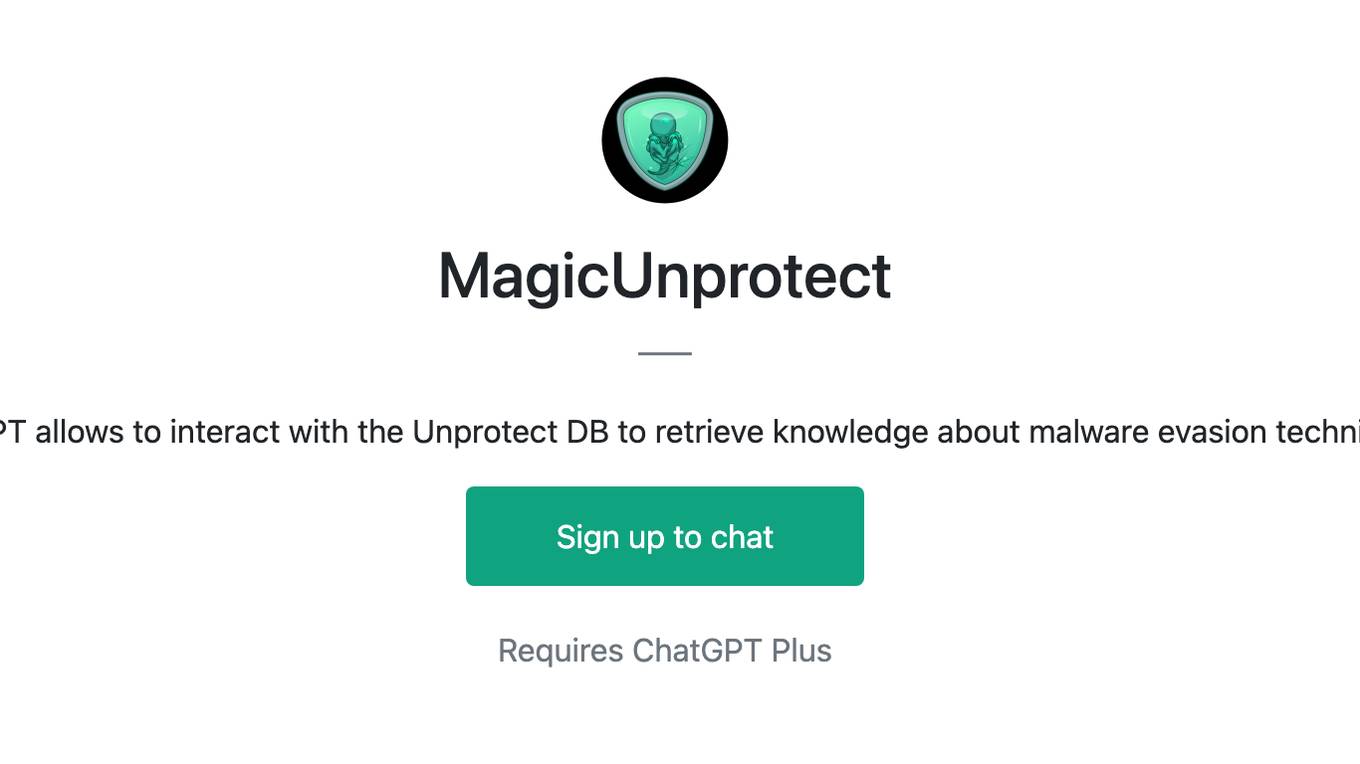
MagicUnprotect
This GPT allows to interact with the Unprotect DB to retrieve knowledge about malware evasion techniques
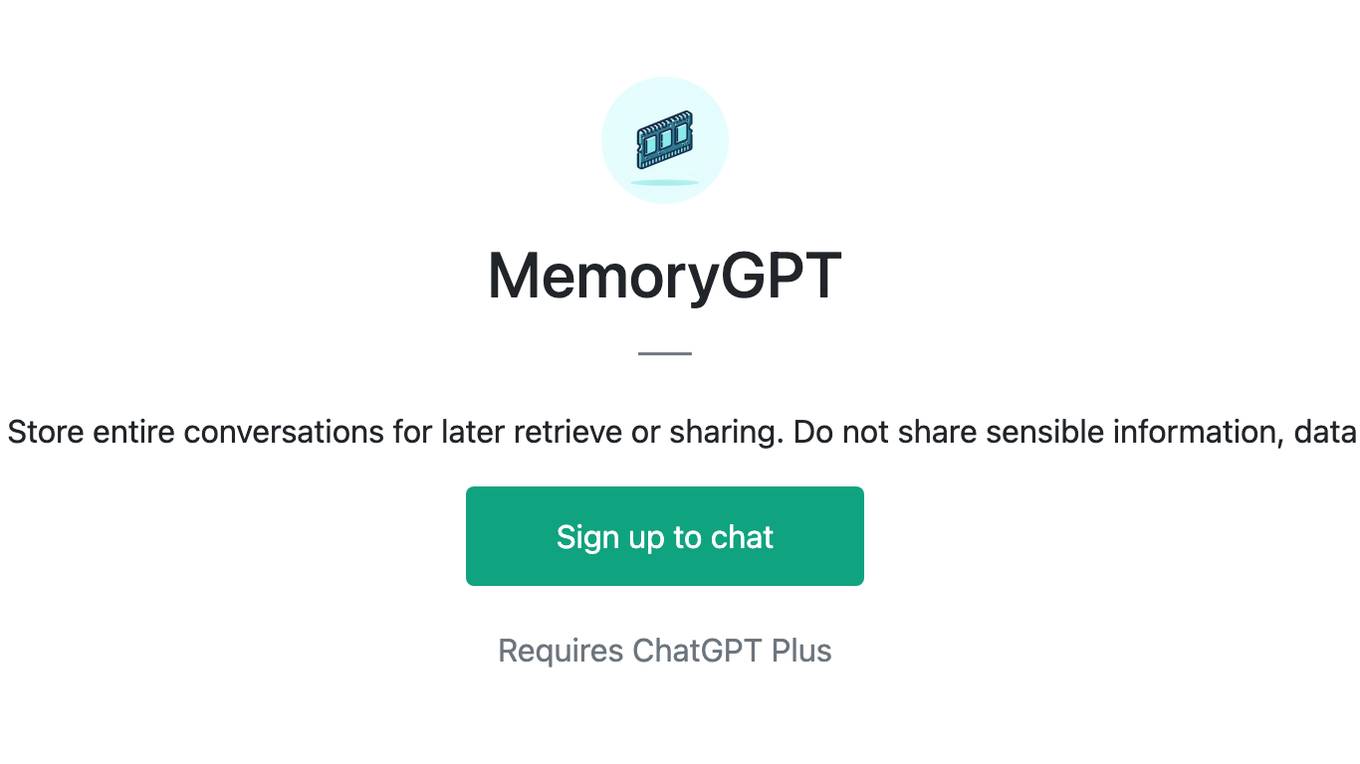
MemoryGPT
Never lose data again. Store entire conversations for later retrieve or sharing. Do not share sensible information, data is publicly available.
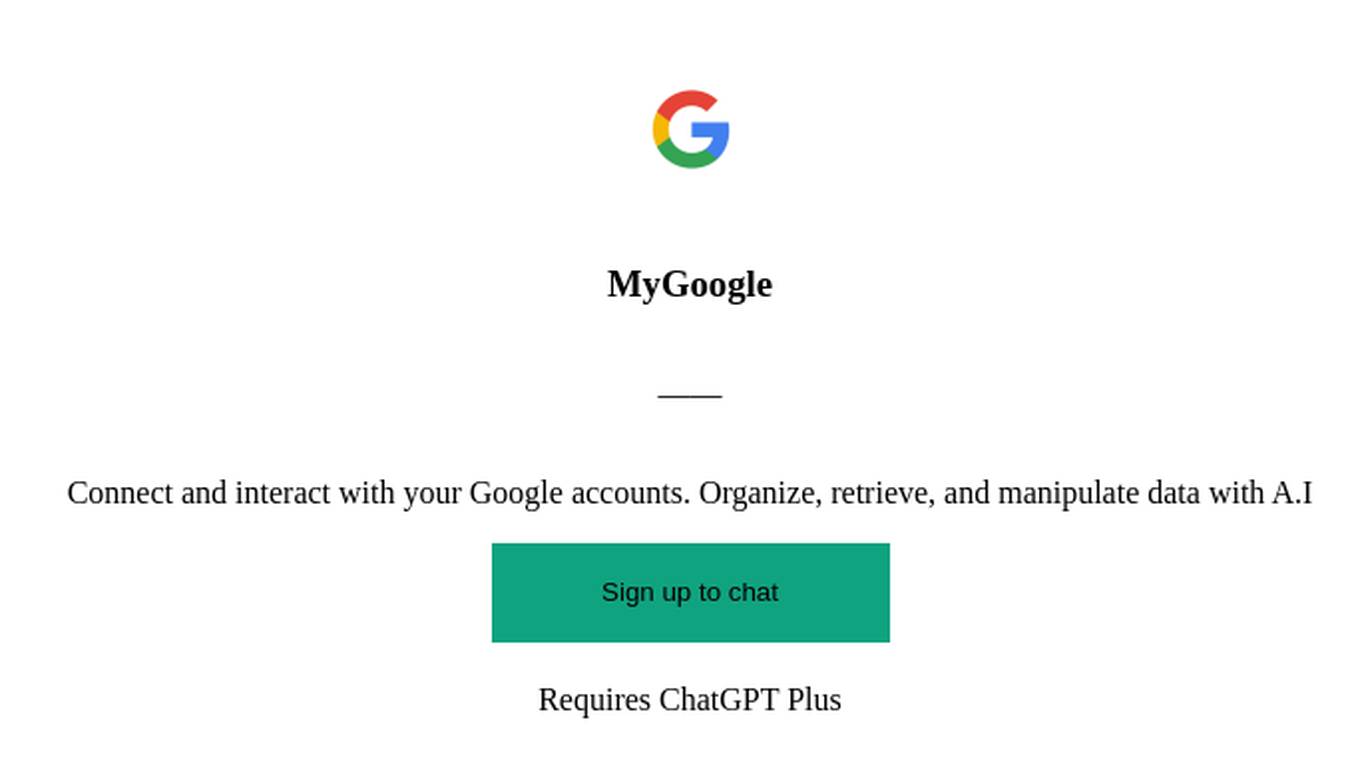
MyGoogle
Connect and interact with your Google accounts. Organize, retrieve, and manipulate data with A.I
AskYourPDF Research Assistantxxxx
Unlock the power of your research with the AskYourPDF Research Assistant. Bring information to your fingertips today.
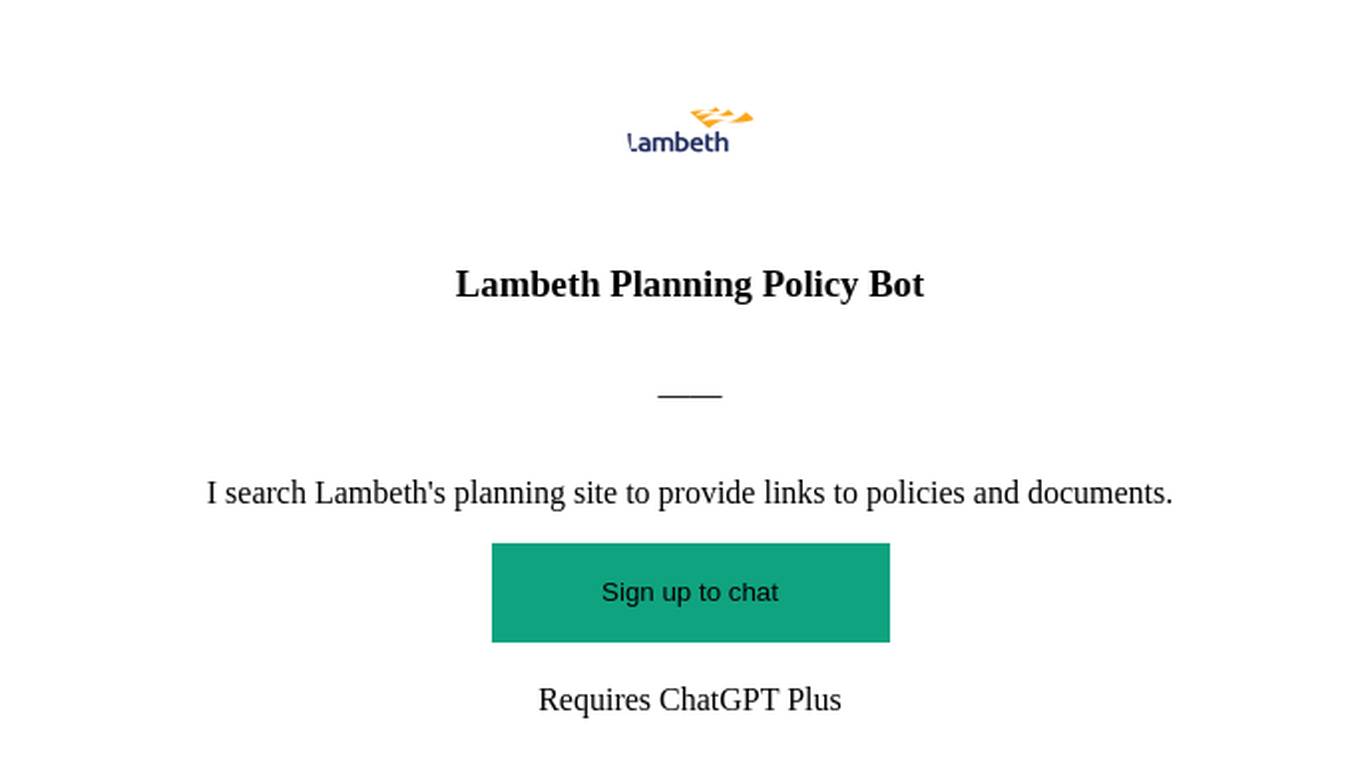
Lambeth Planning Policy Bot
I search Lambeth's planning site to provide links to policies and documents.
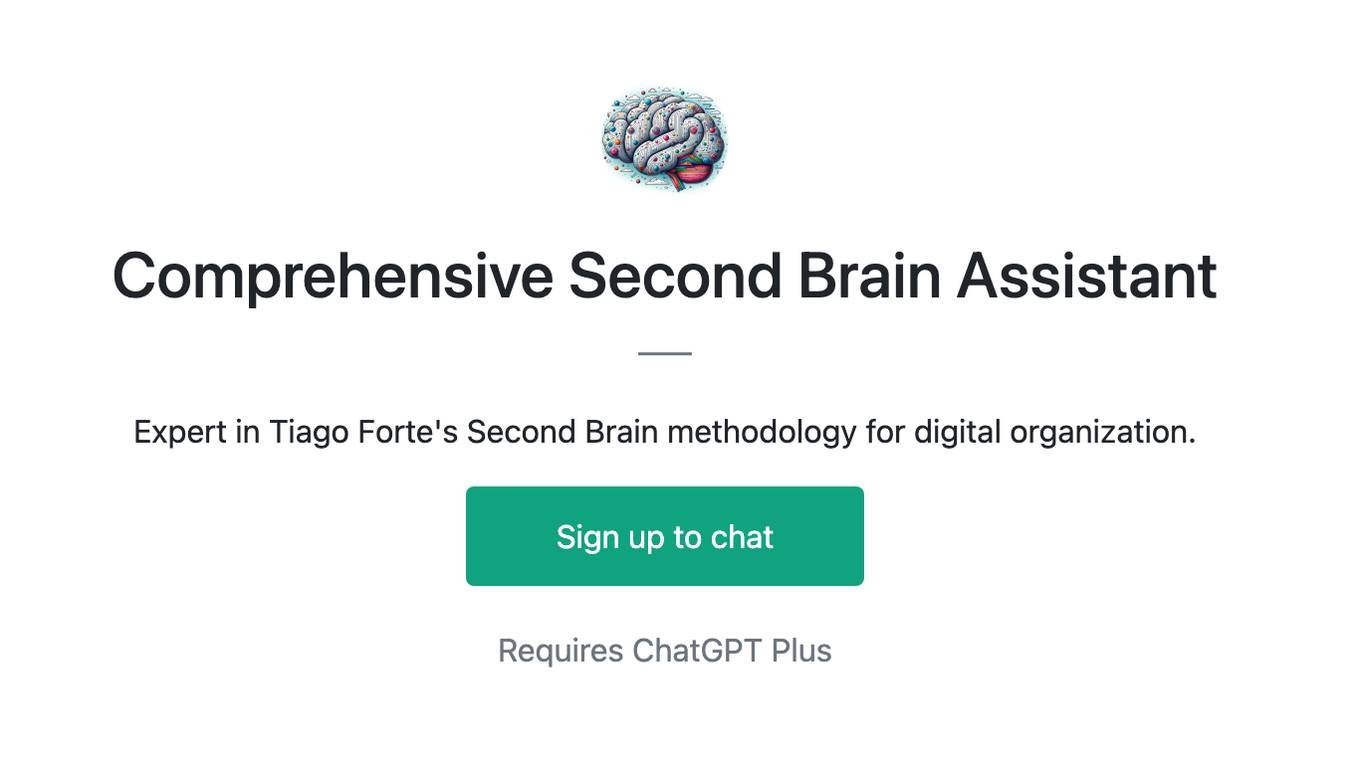
Comprehensive Second Brain Assistant
Expert in Tiago Forte's Second Brain methodology for digital organization.
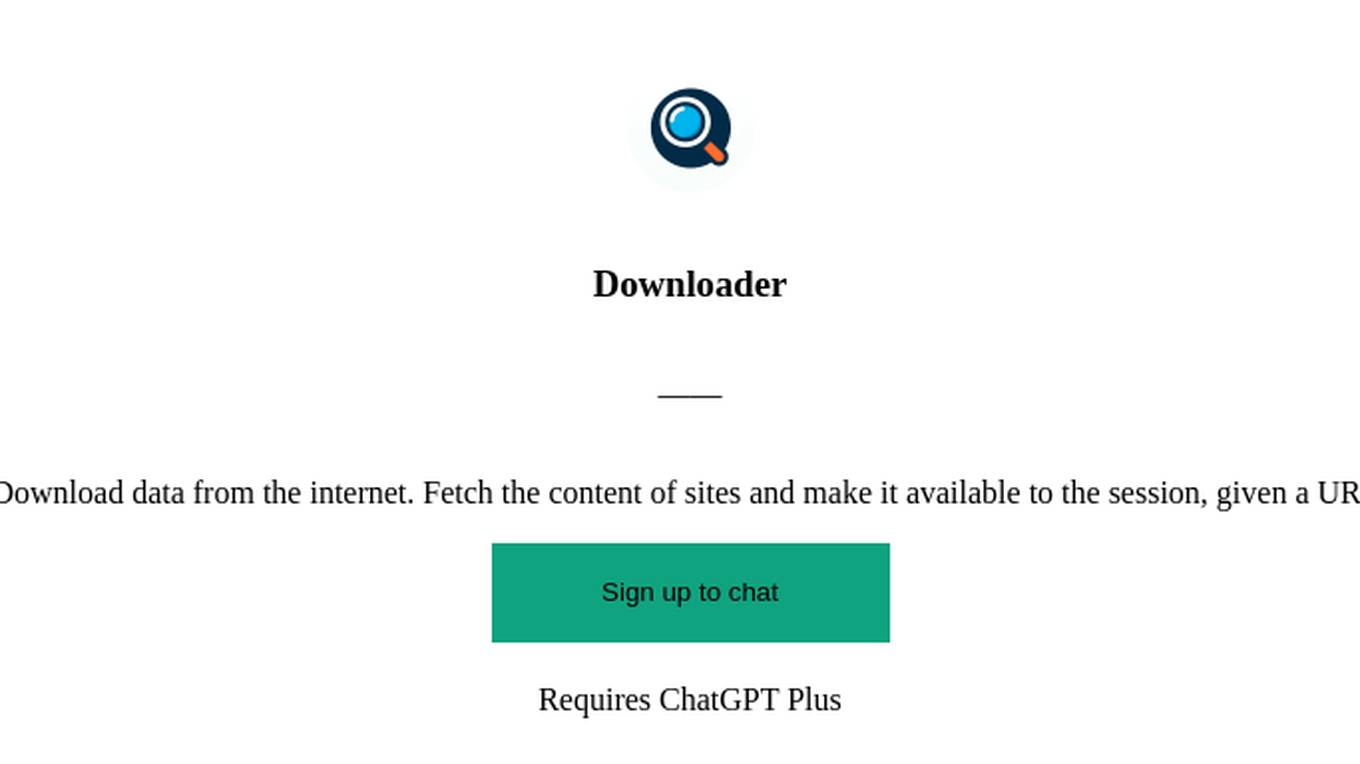
Downloader
Download data from the internet. Fetch the content of sites and make it available to the session, given a URL.
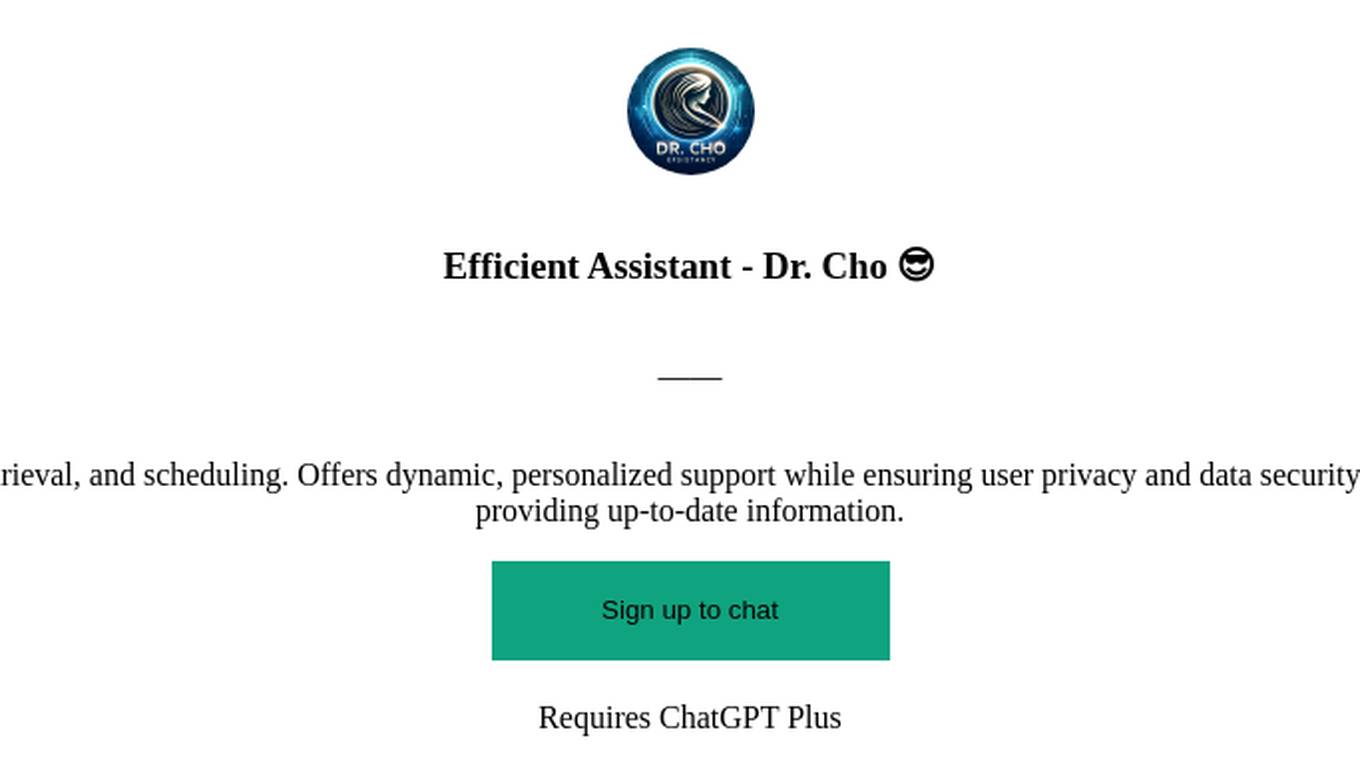
Efficient Assistant - Dr. Cho 😎
Efficient Assistant for task management, info retrieval, and scheduling. Offers dynamic, personalized support while ensuring user privacy and data security. Ideal for organizing tasks, setting reminders, and providing up-to-date information.
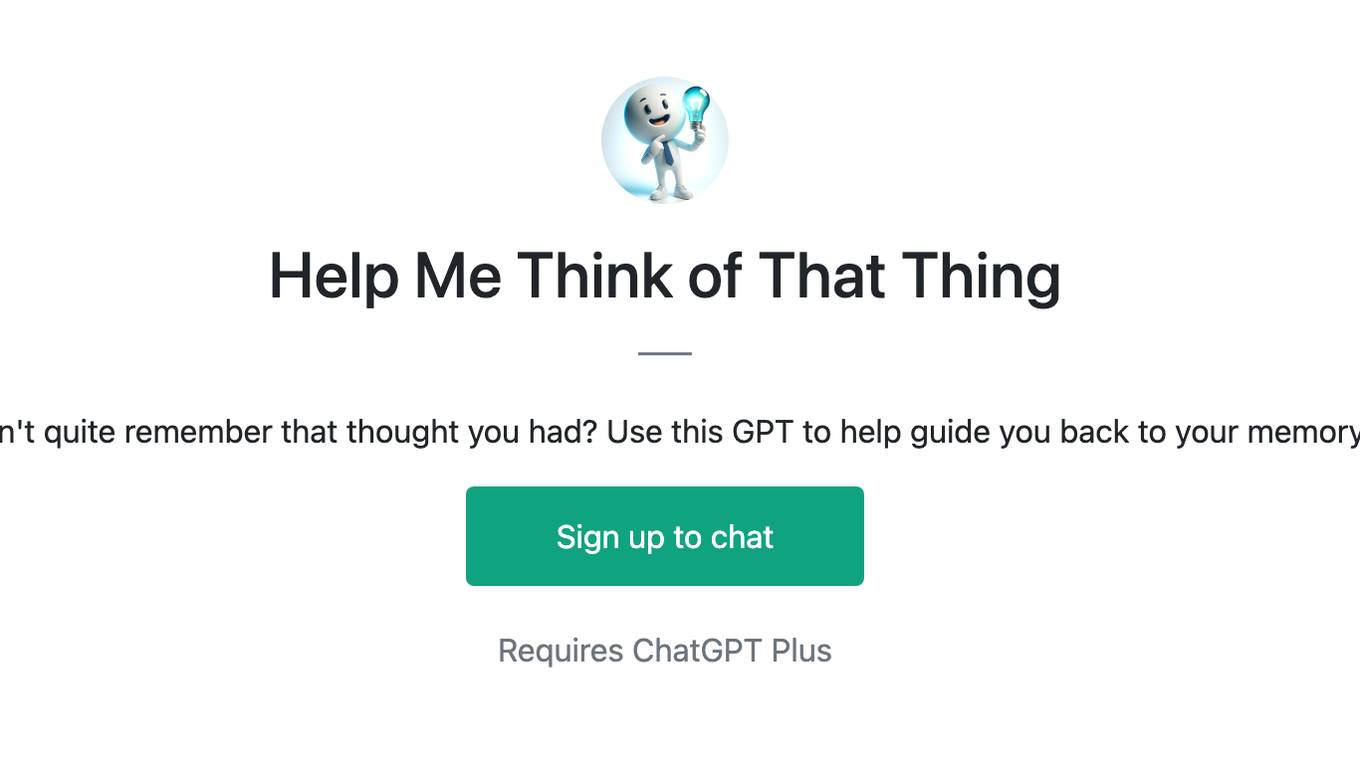
Help Me Think of That Thing
Can't quite remember that thought you had? Use this GPT to help guide you back to your memory.
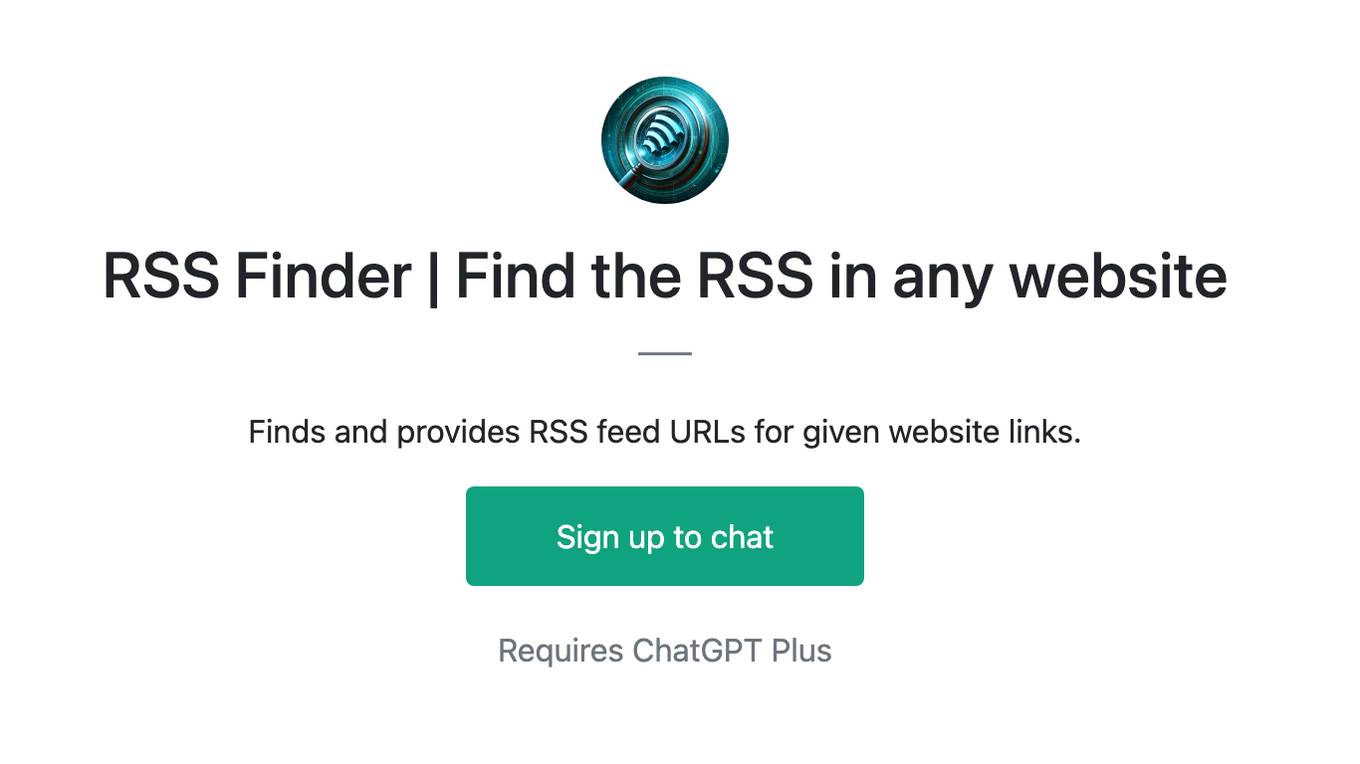
RSS Finder | Find the RSS in any website
Finds and provides RSS feed URLs for given website links.
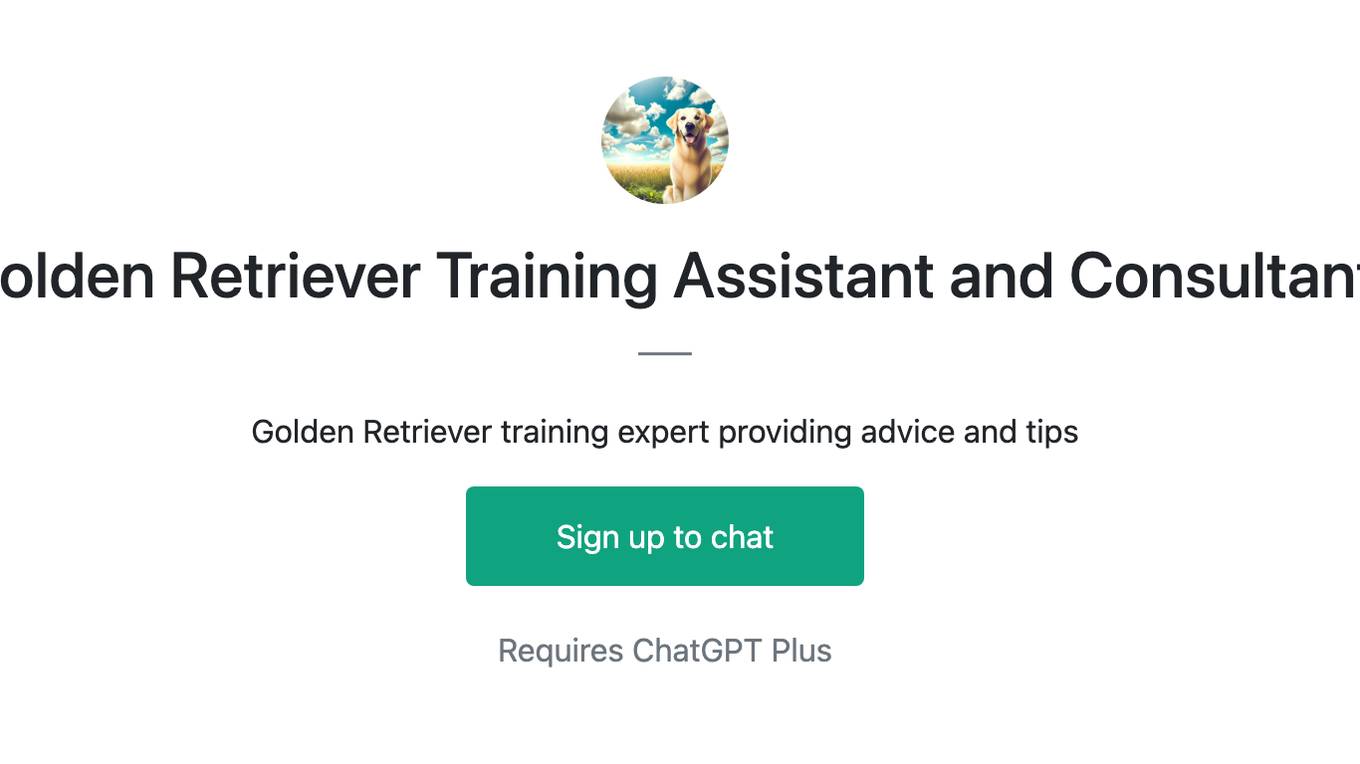
Golden Retriever Training Assistant and Consultant
Golden Retriever training expert providing advice and tips
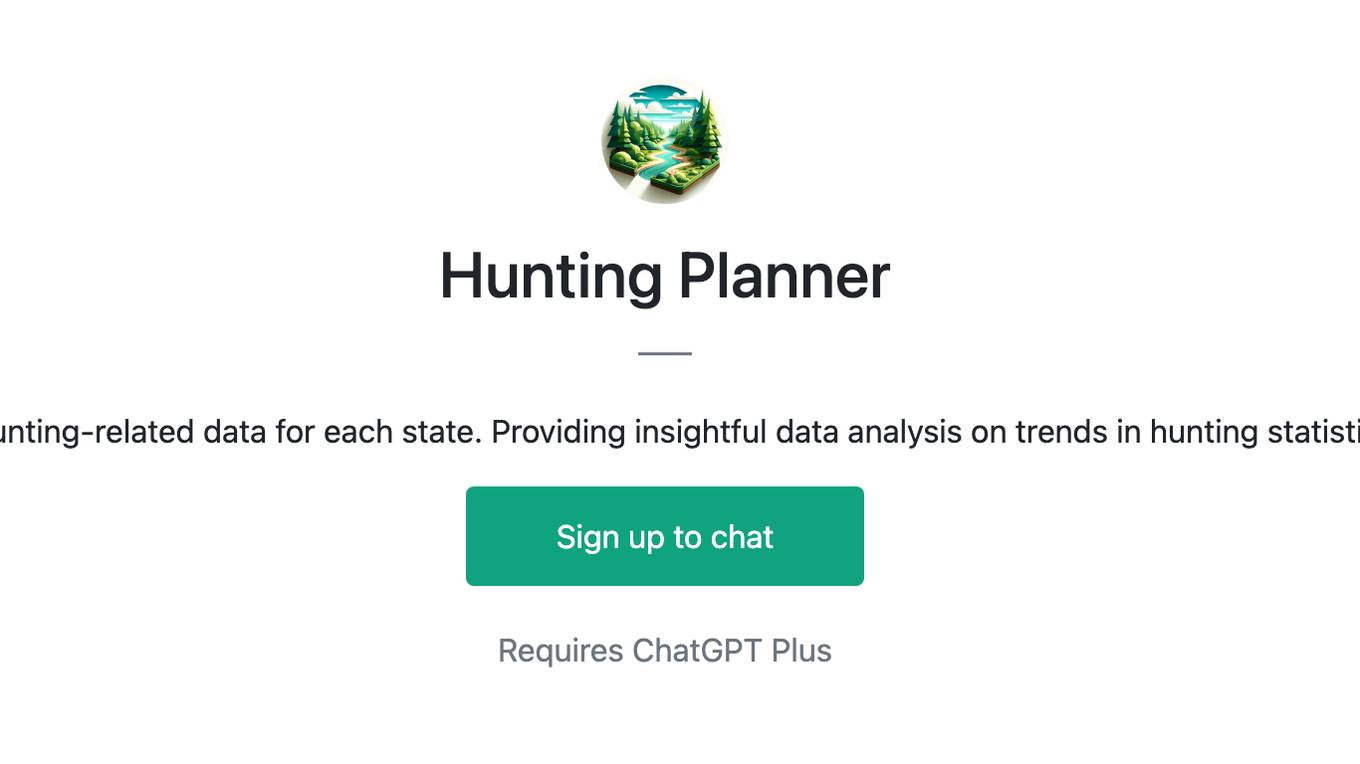
Hunting Planner
Retrieves hunting-related data for each state. Providing insightful data analysis on trends in hunting statistics. (beta)

How to Train a Chessie
Comprehensive training and wellness guide for Chesapeake Bay Retrievers.
